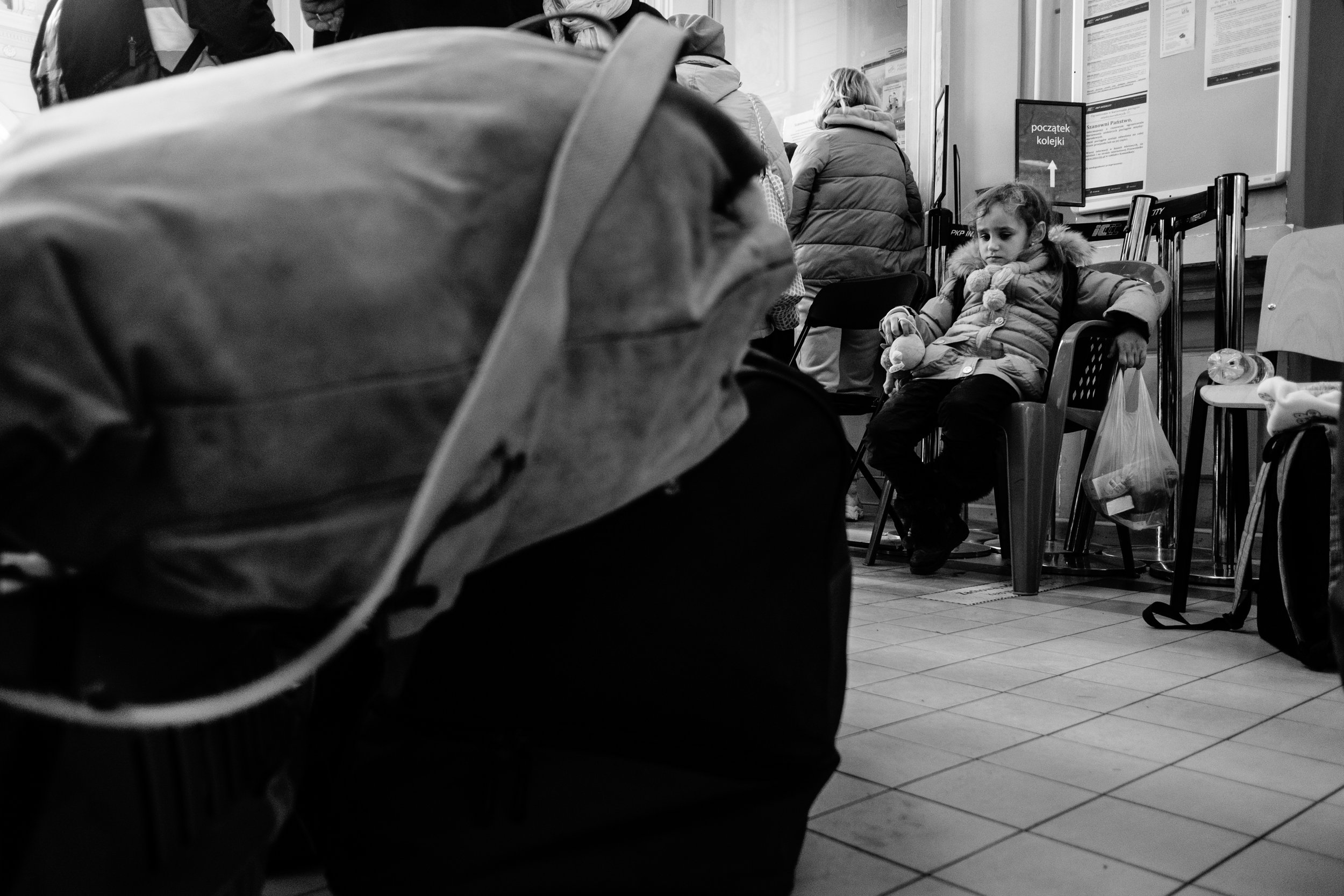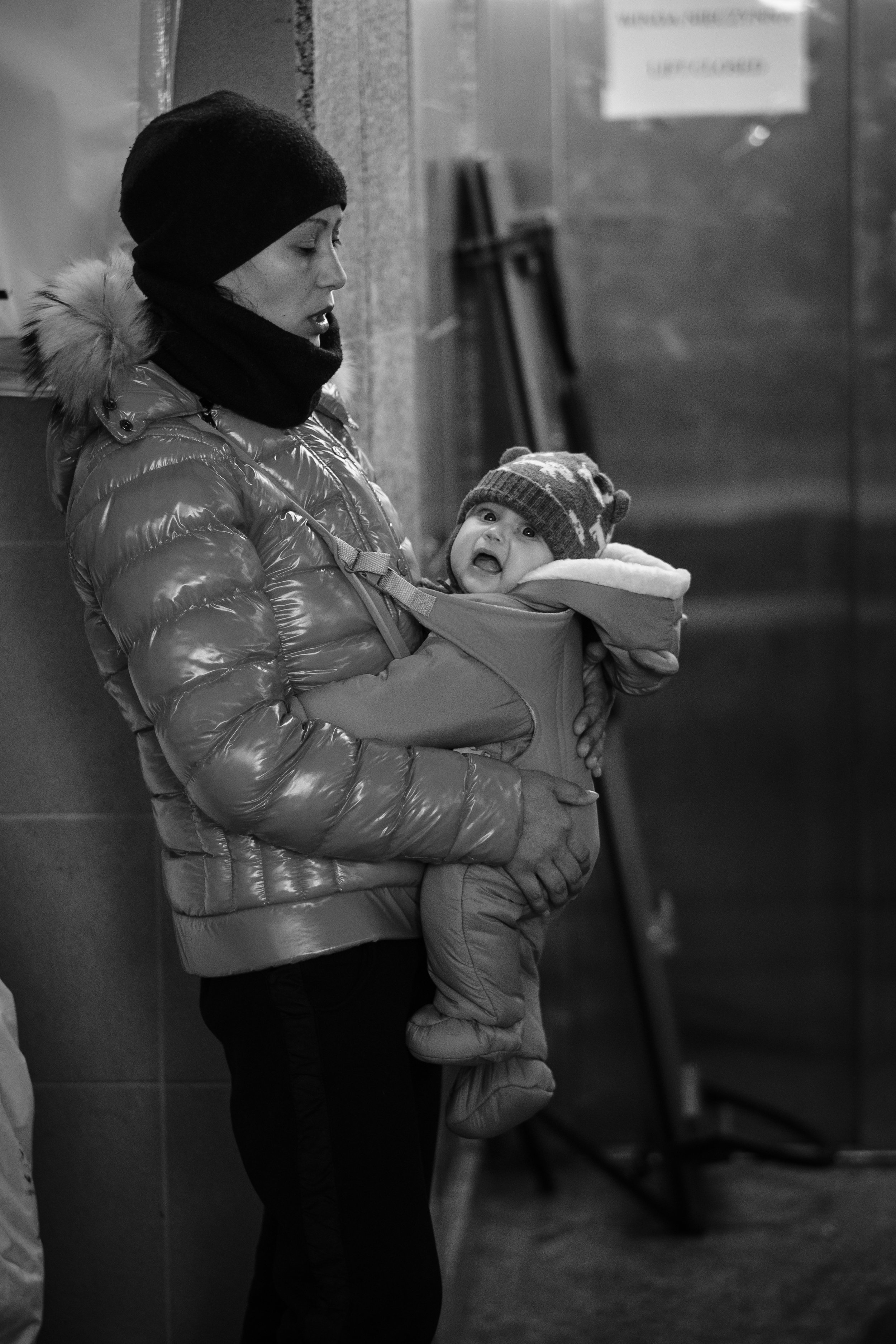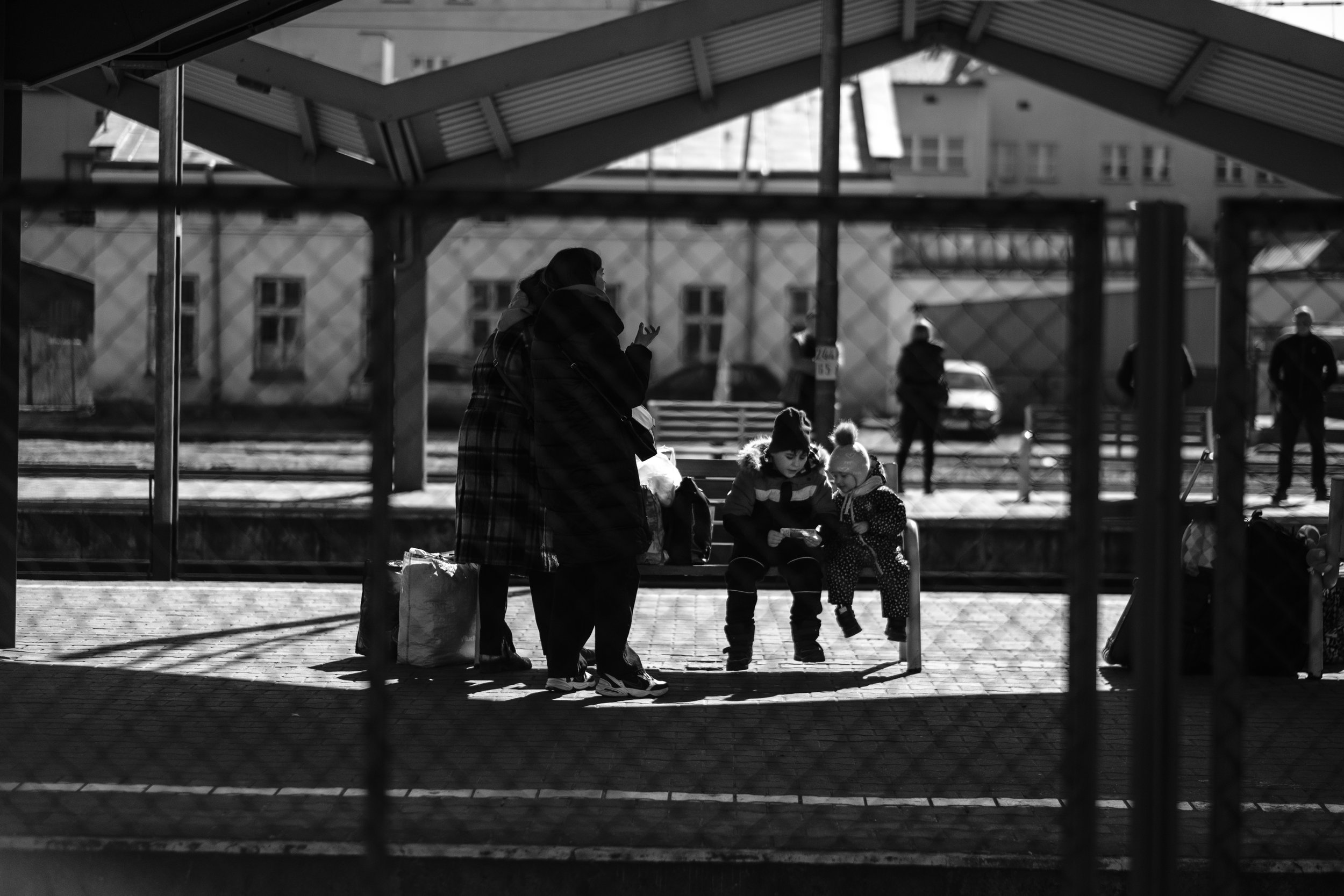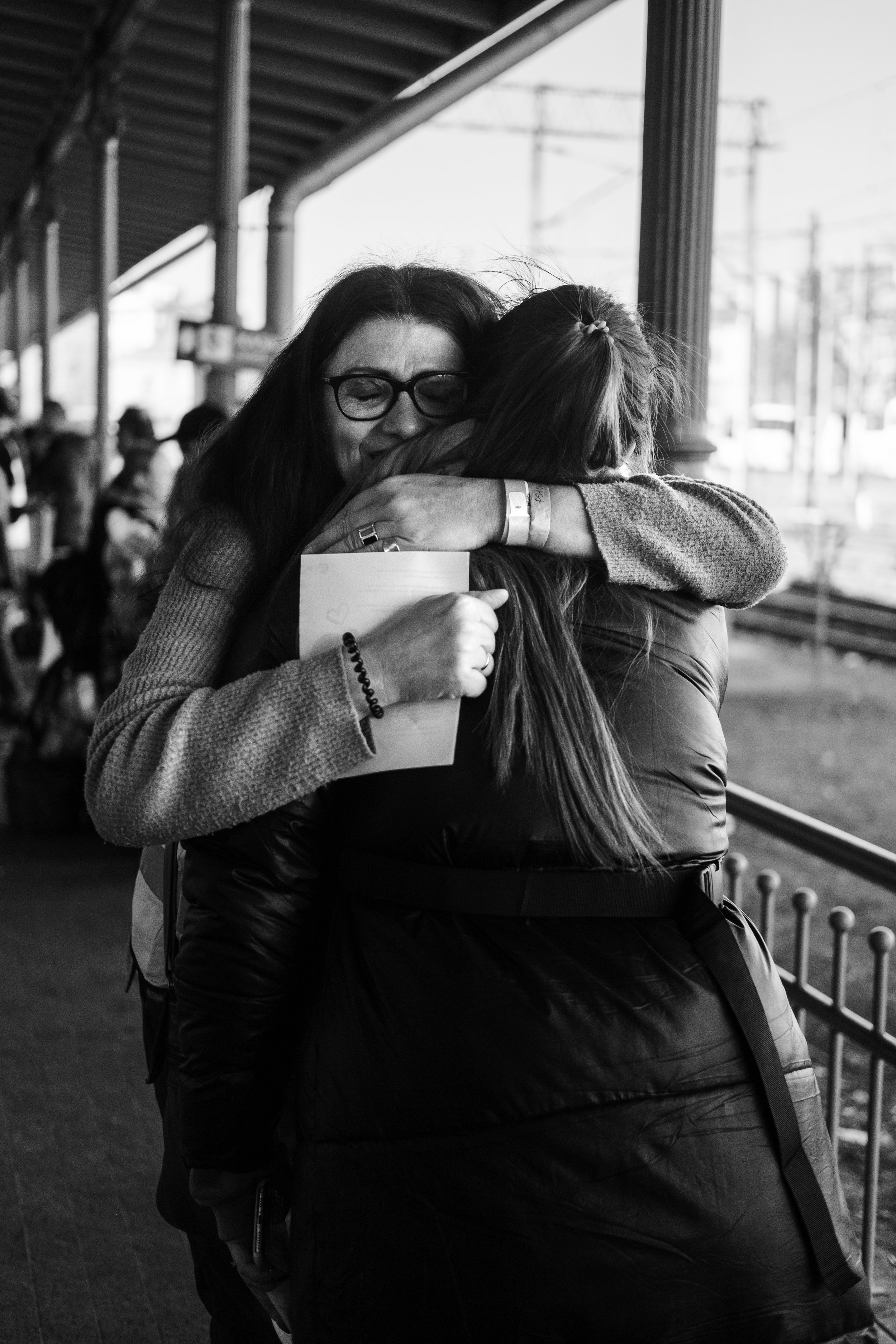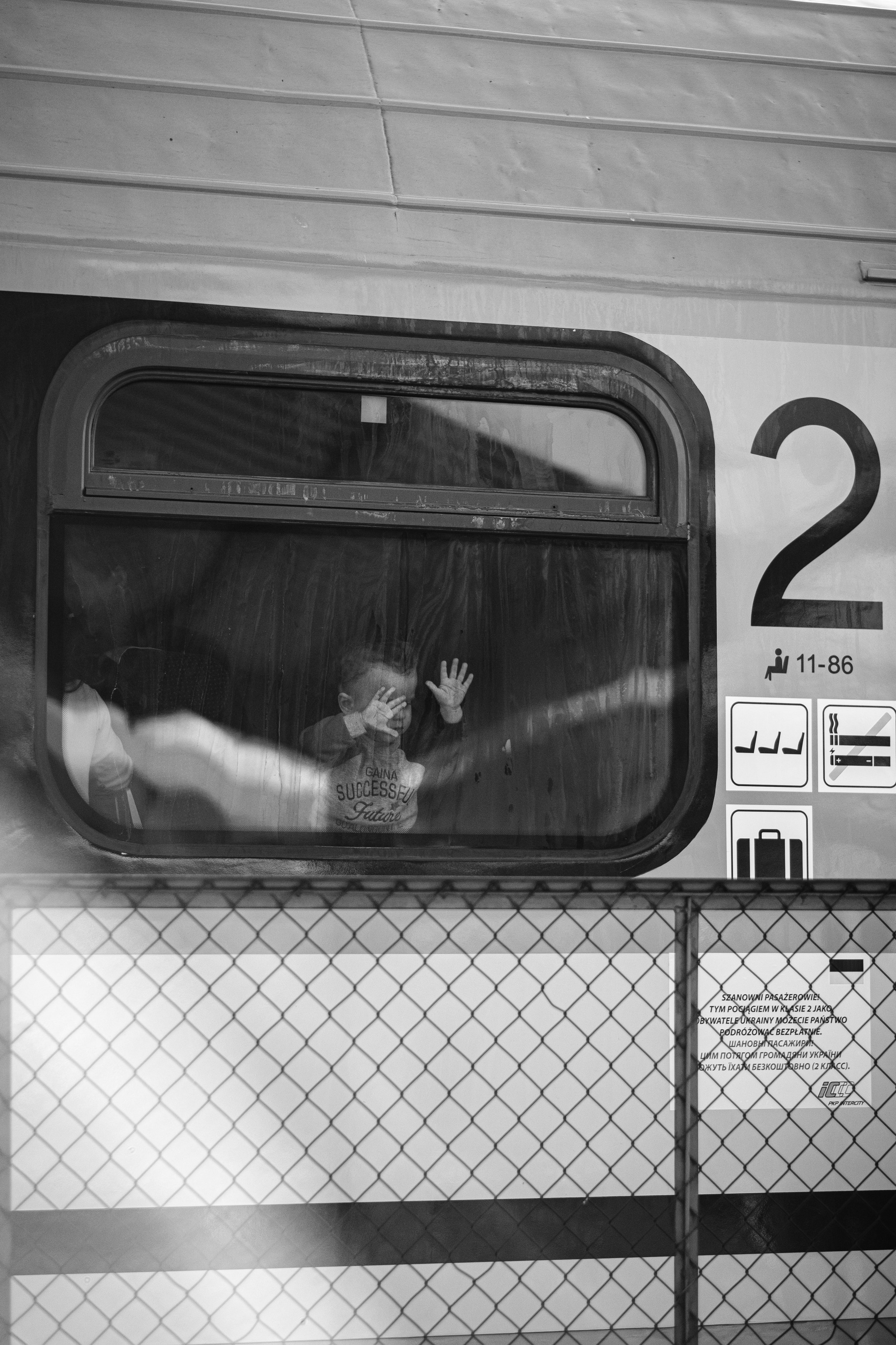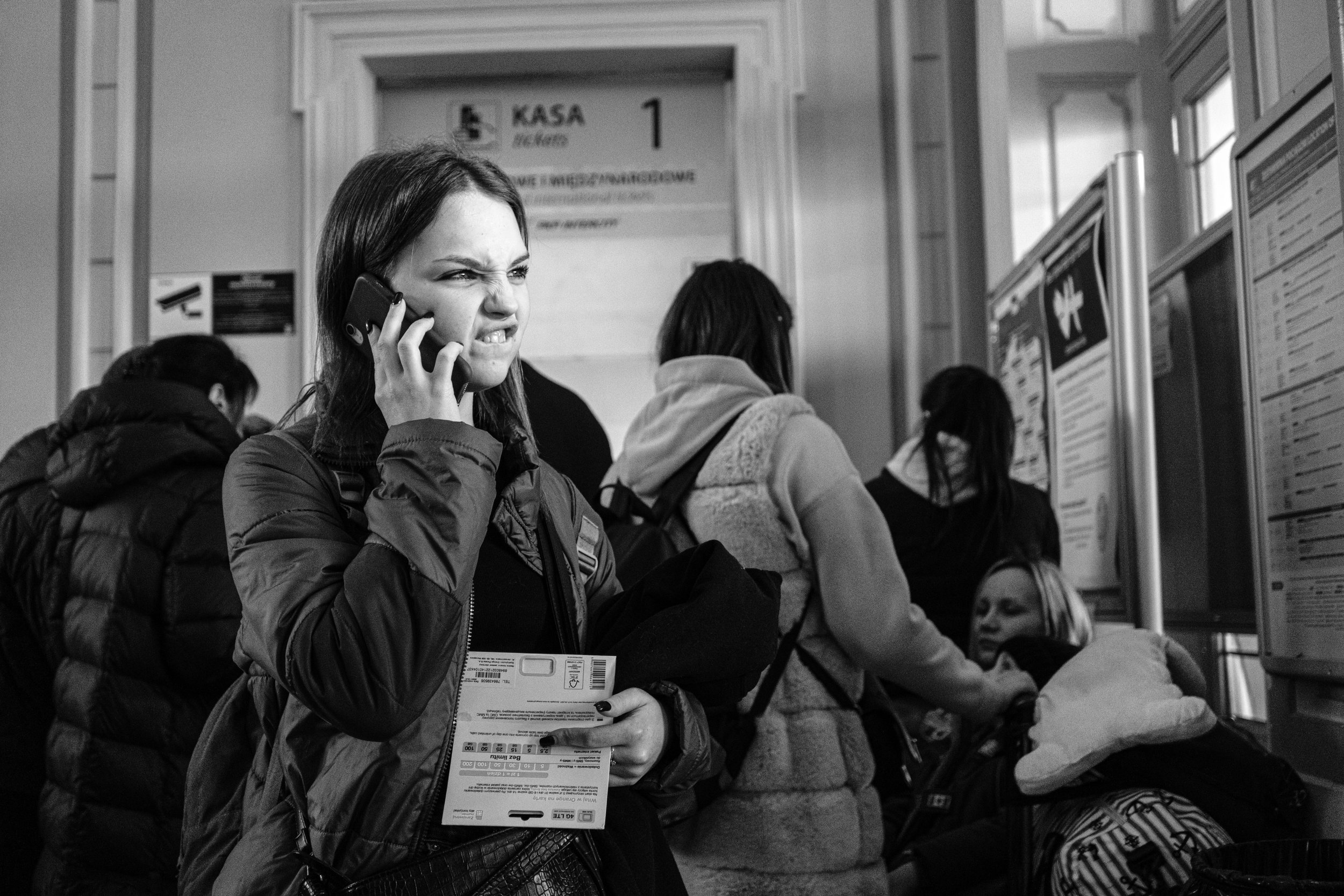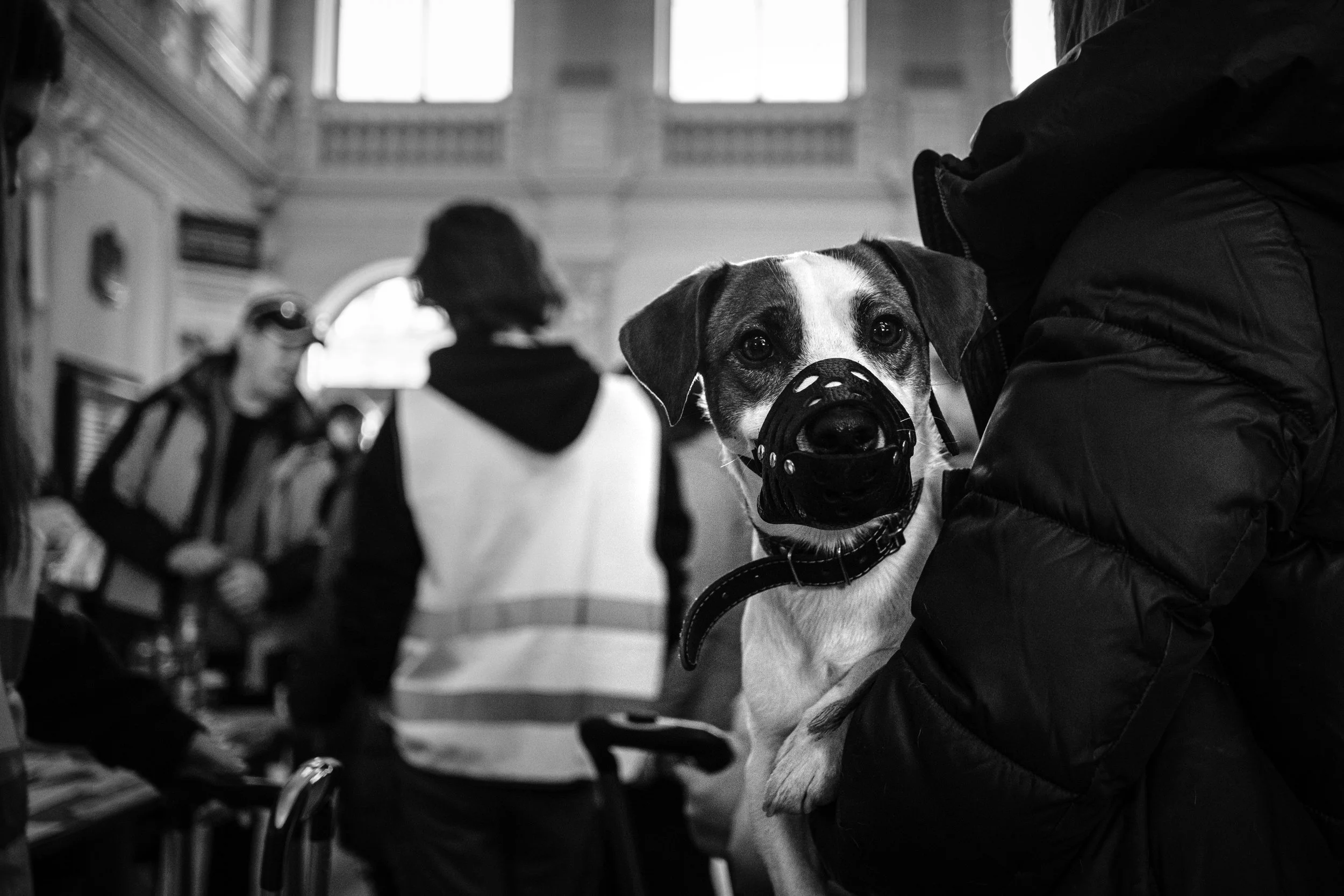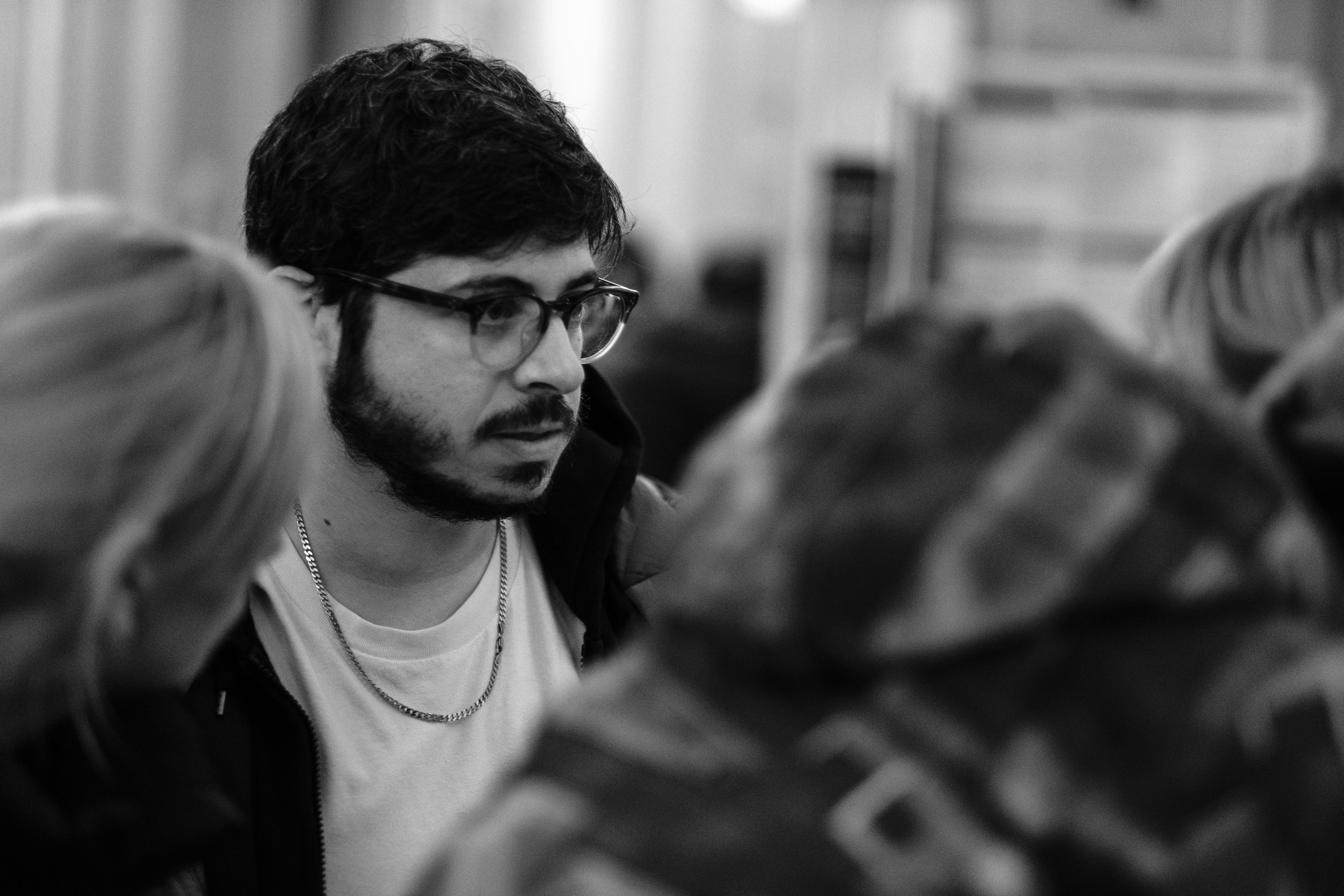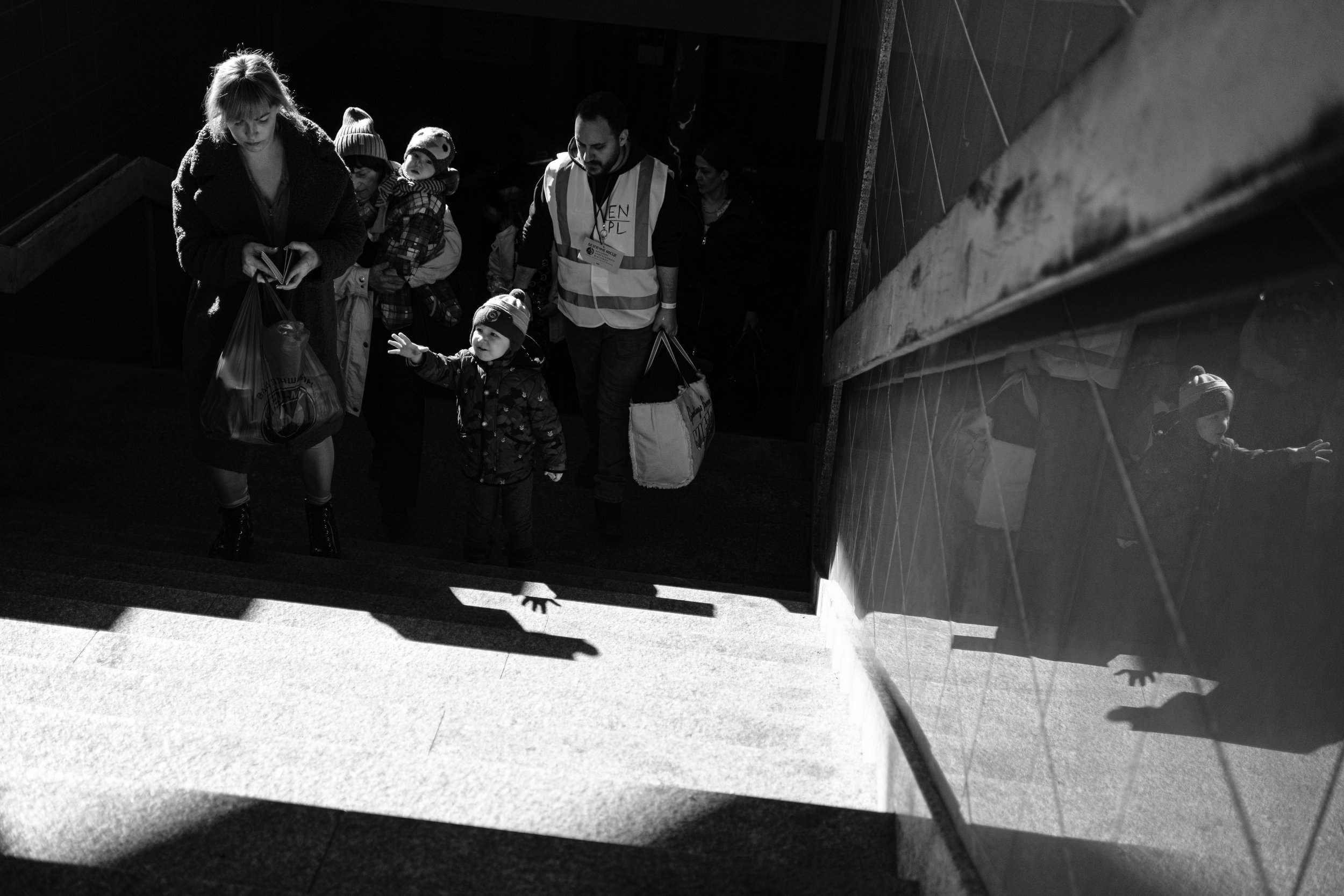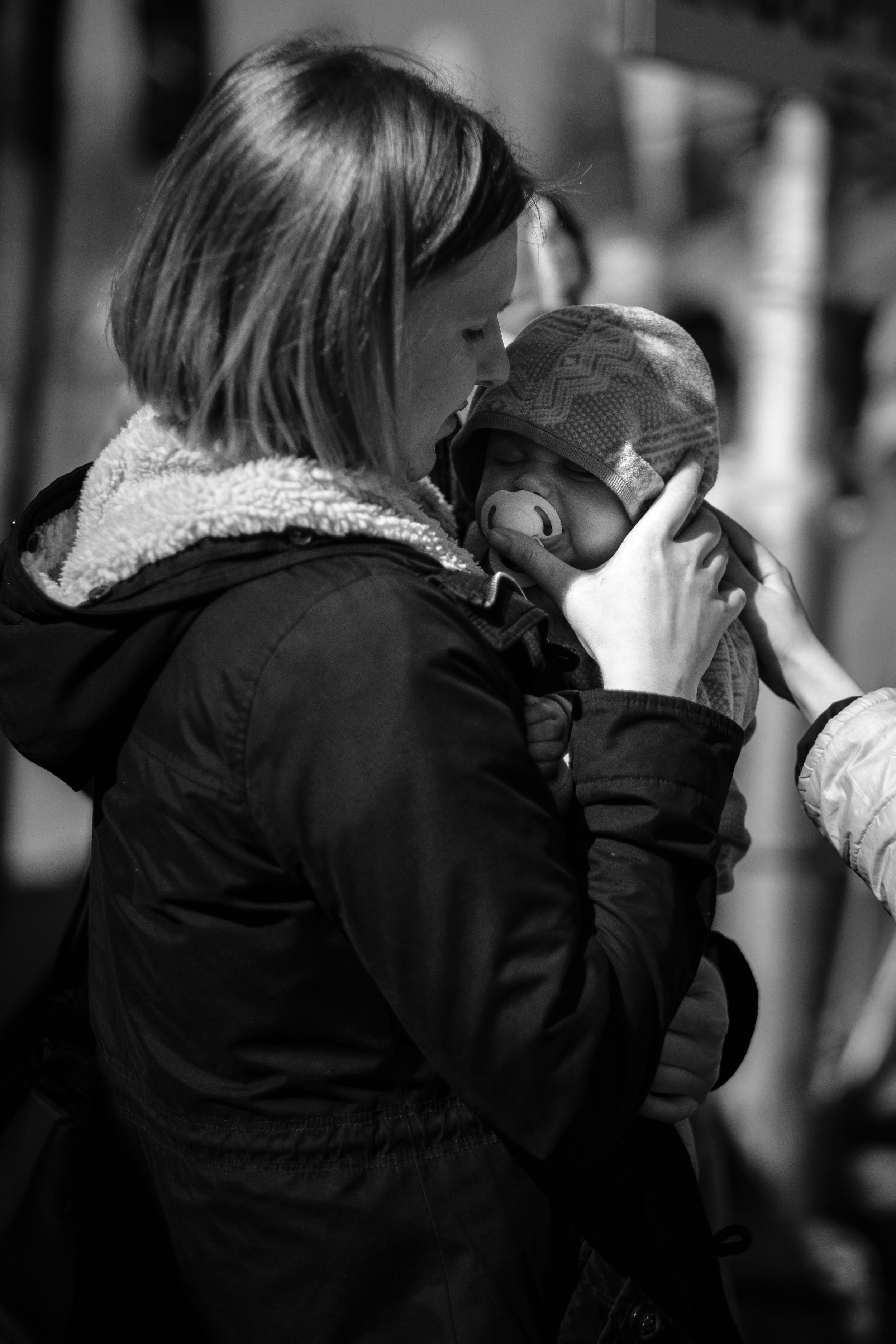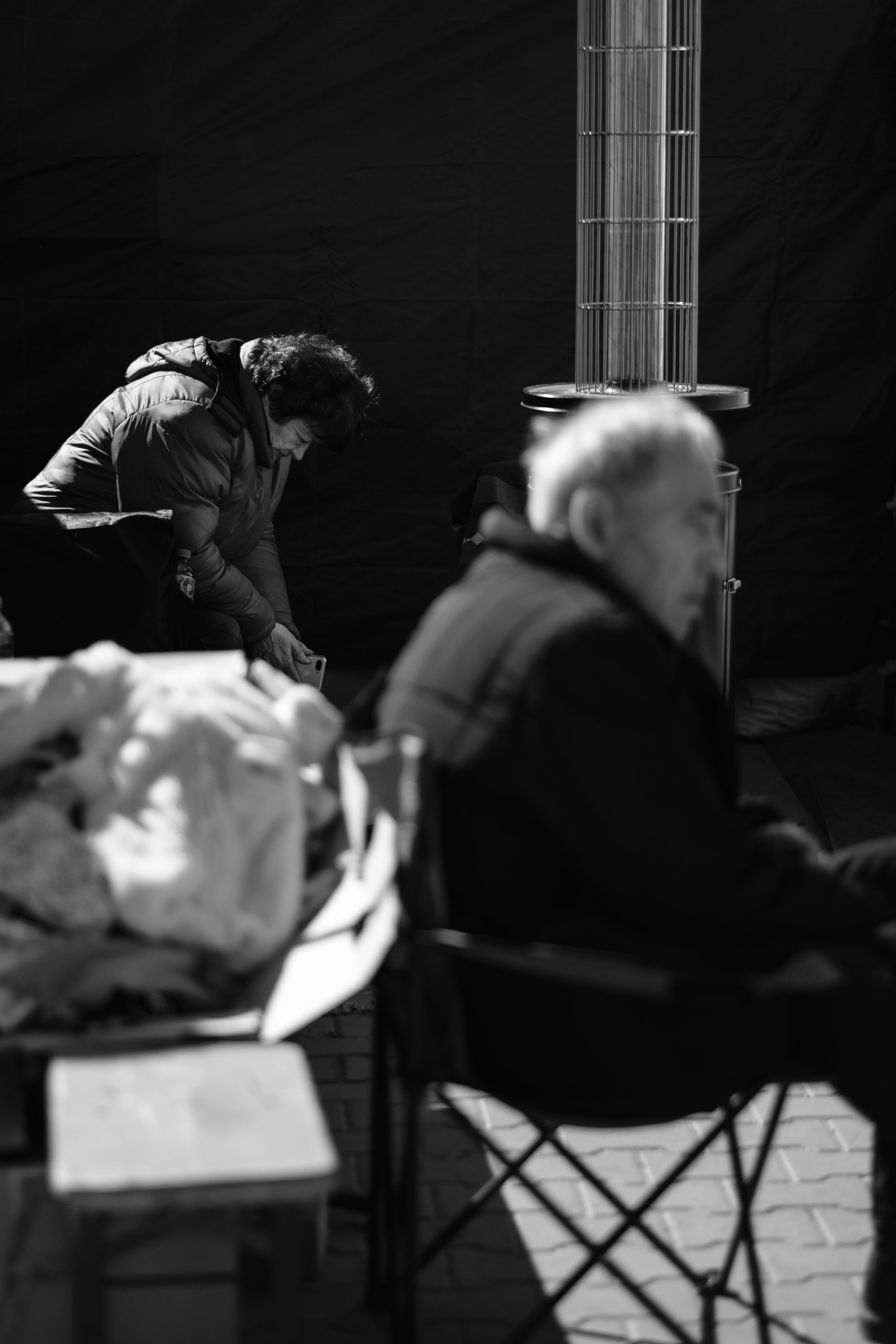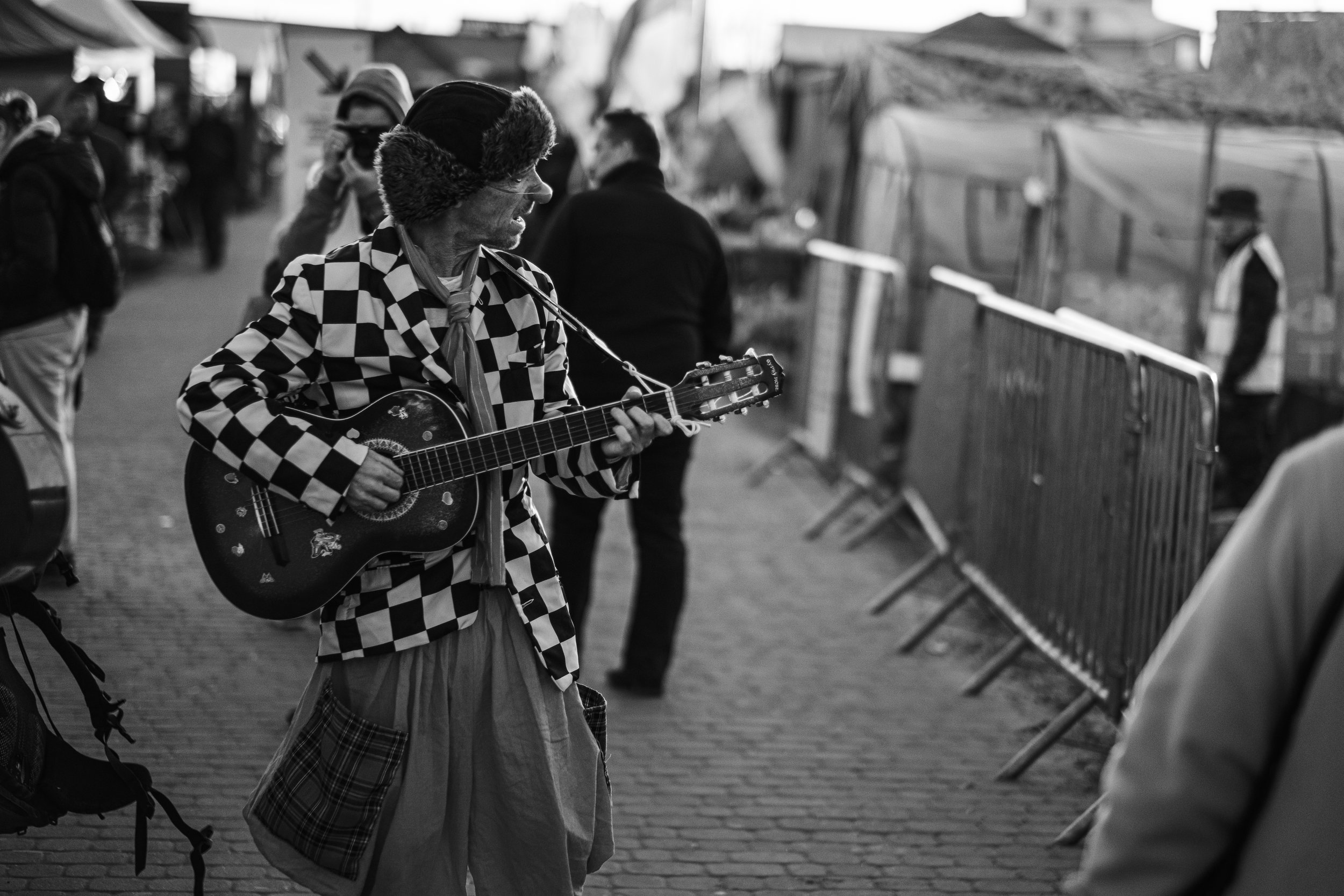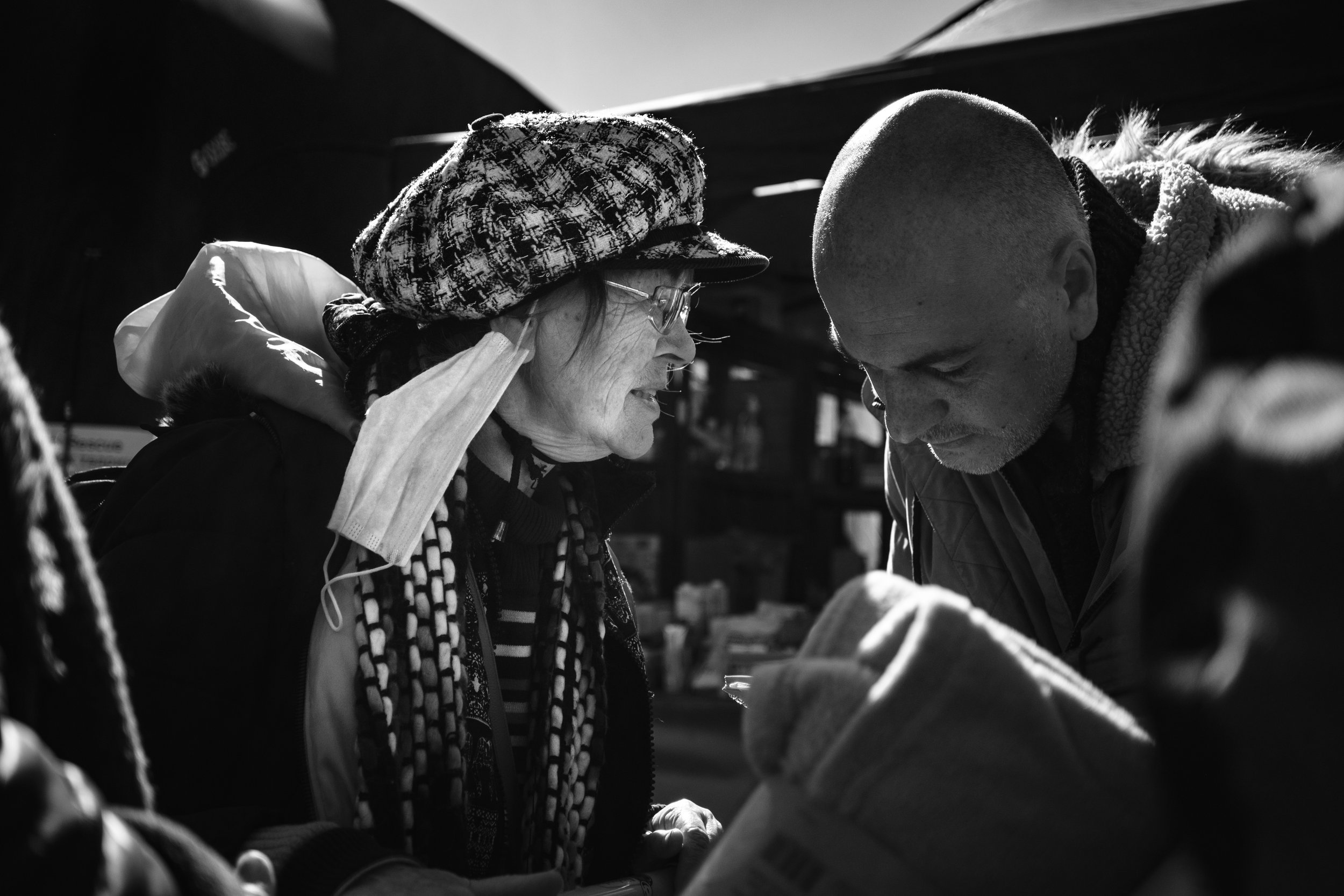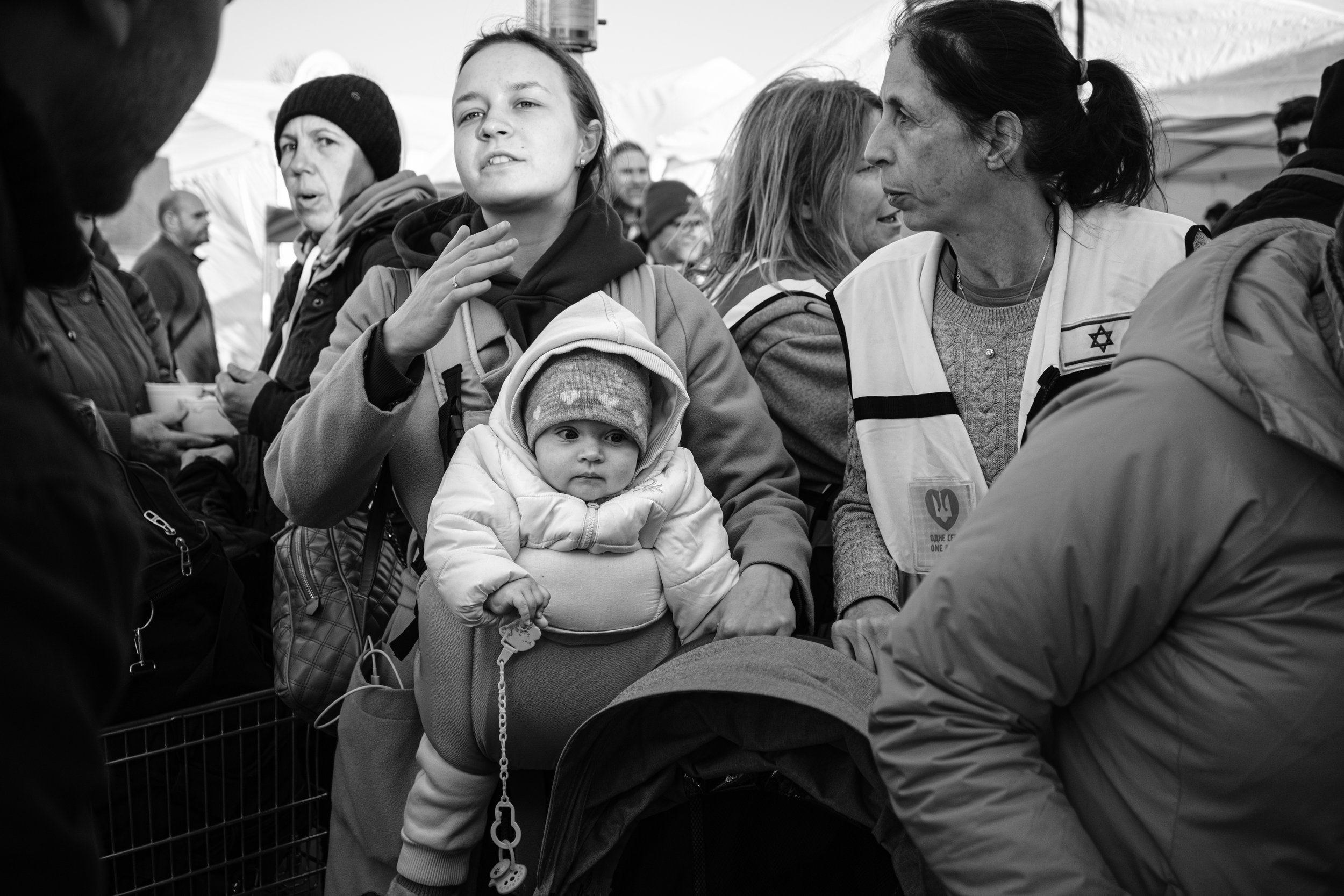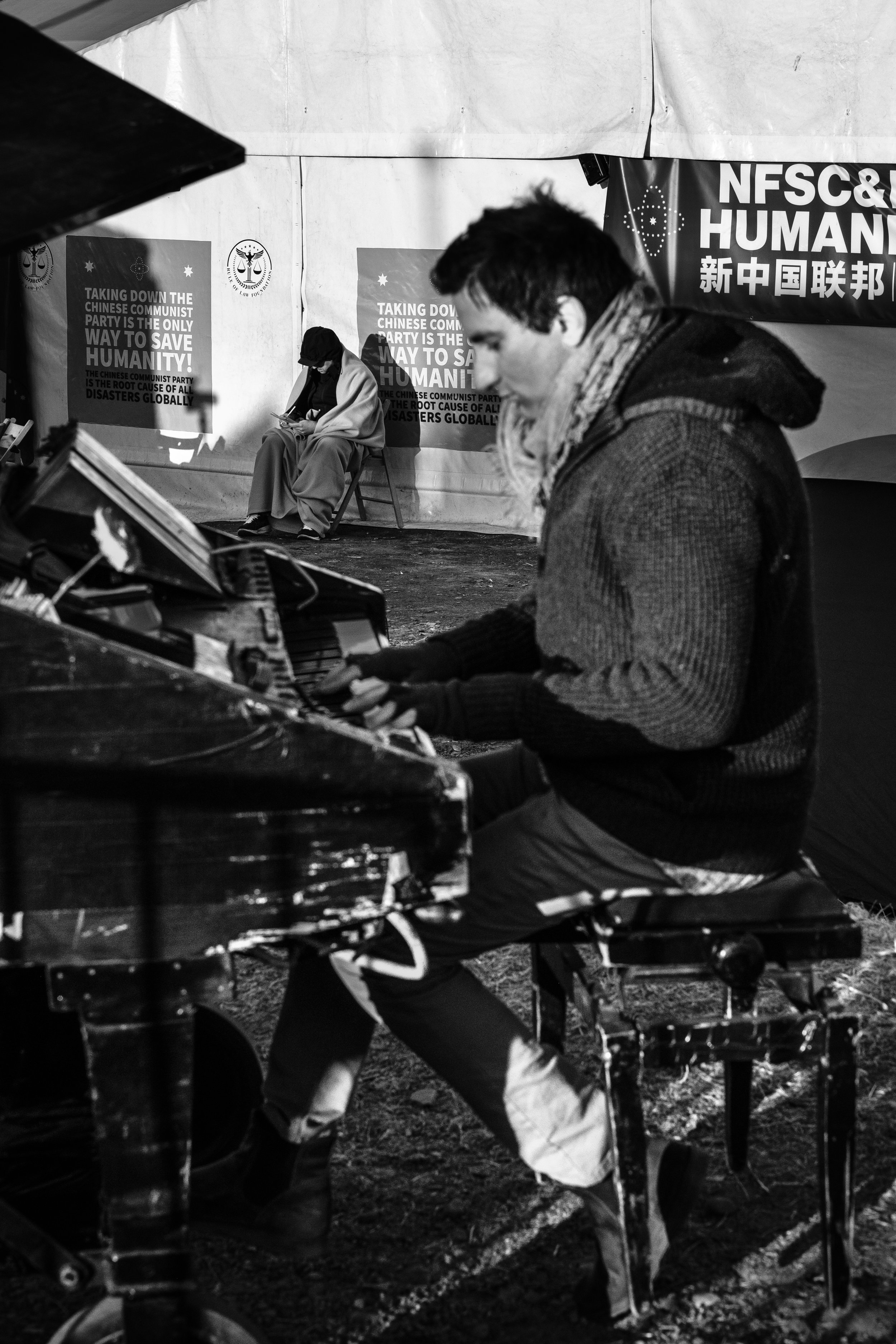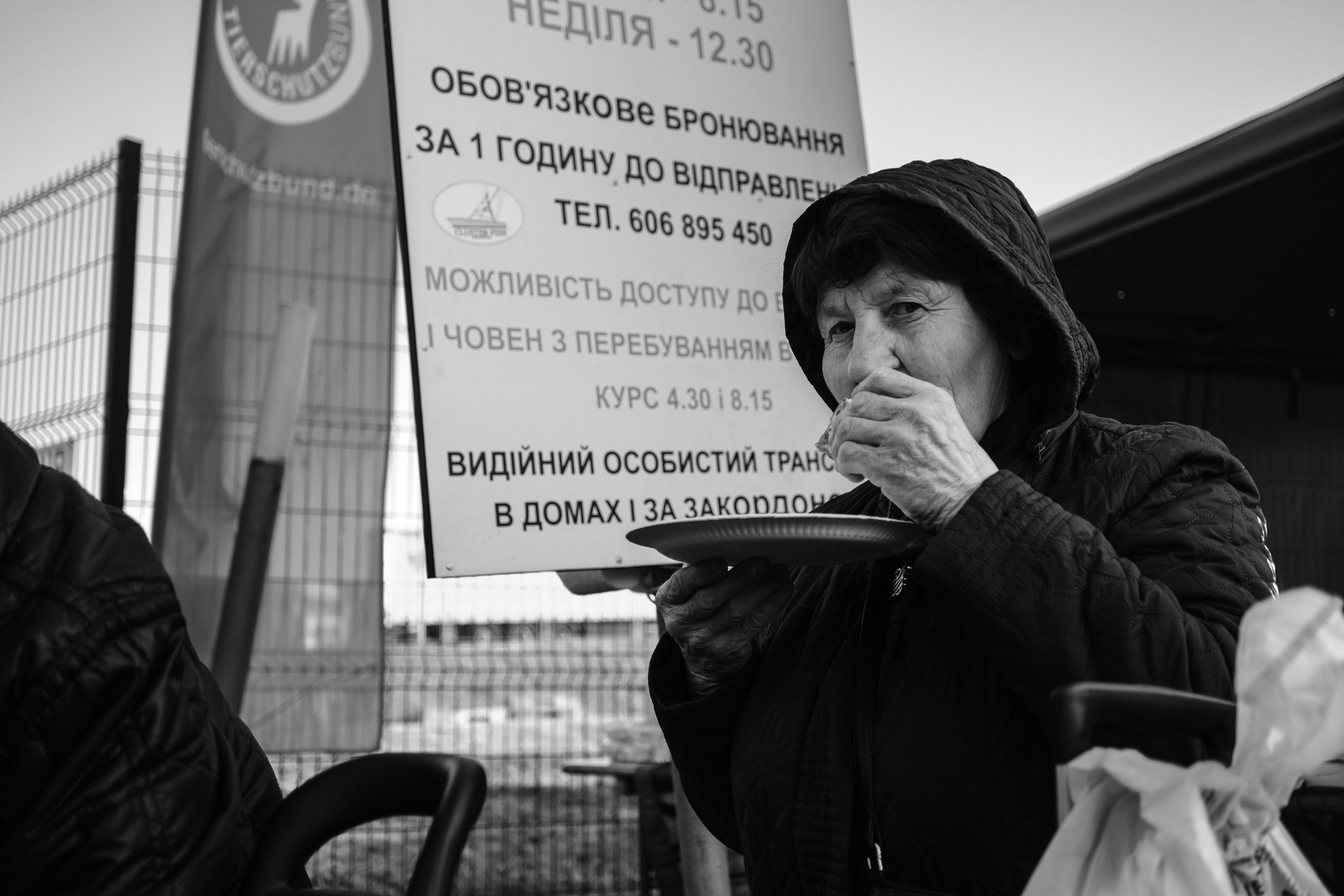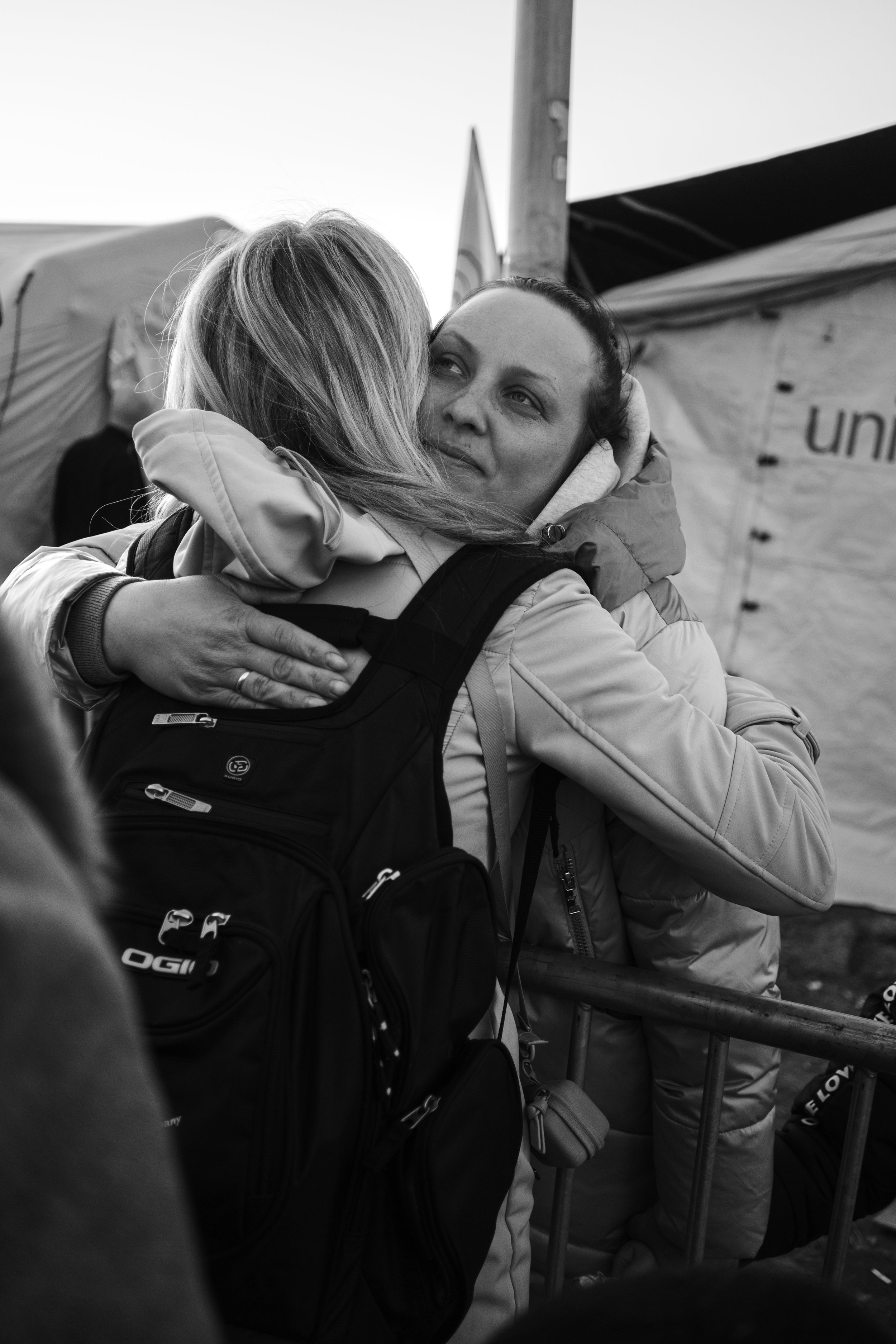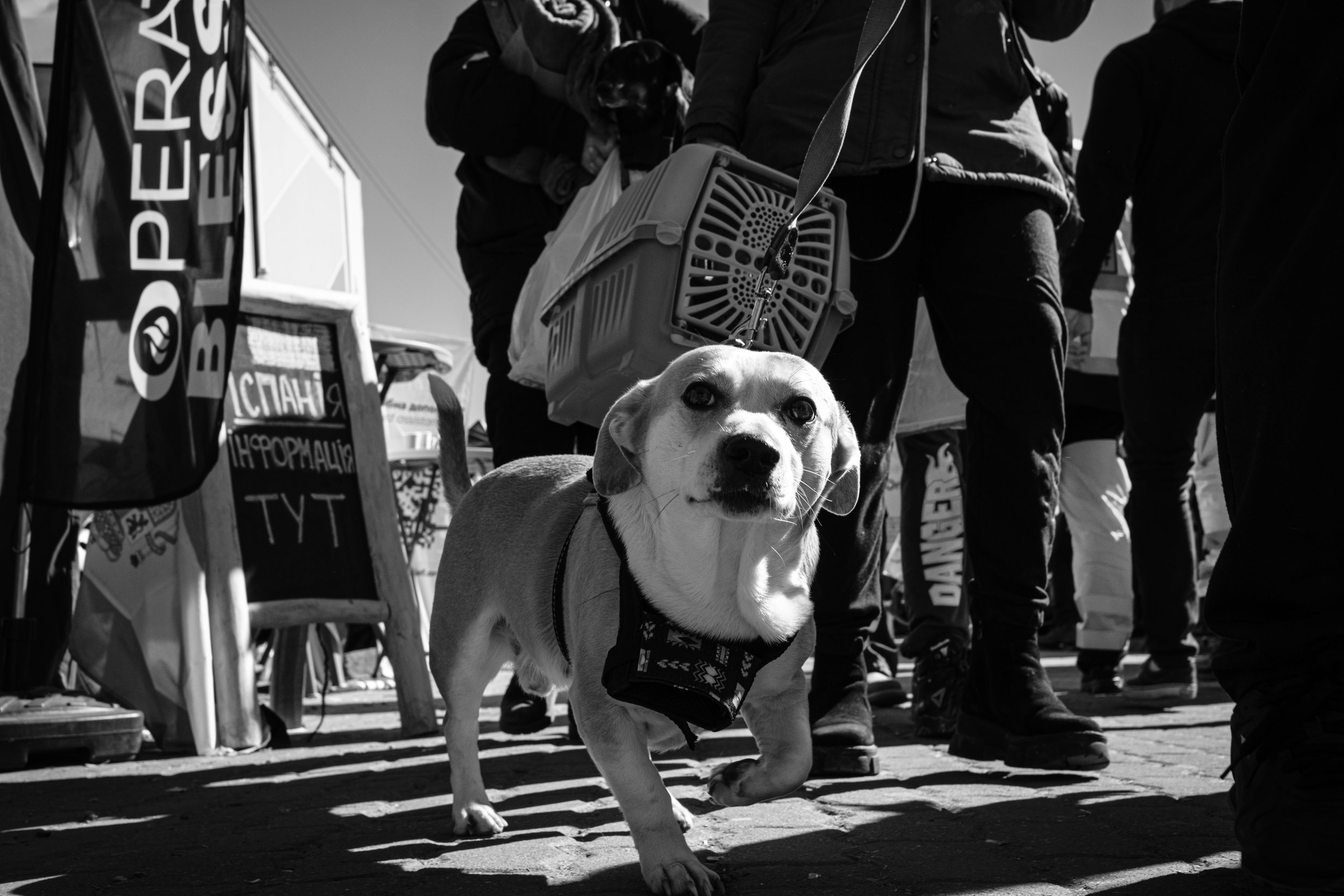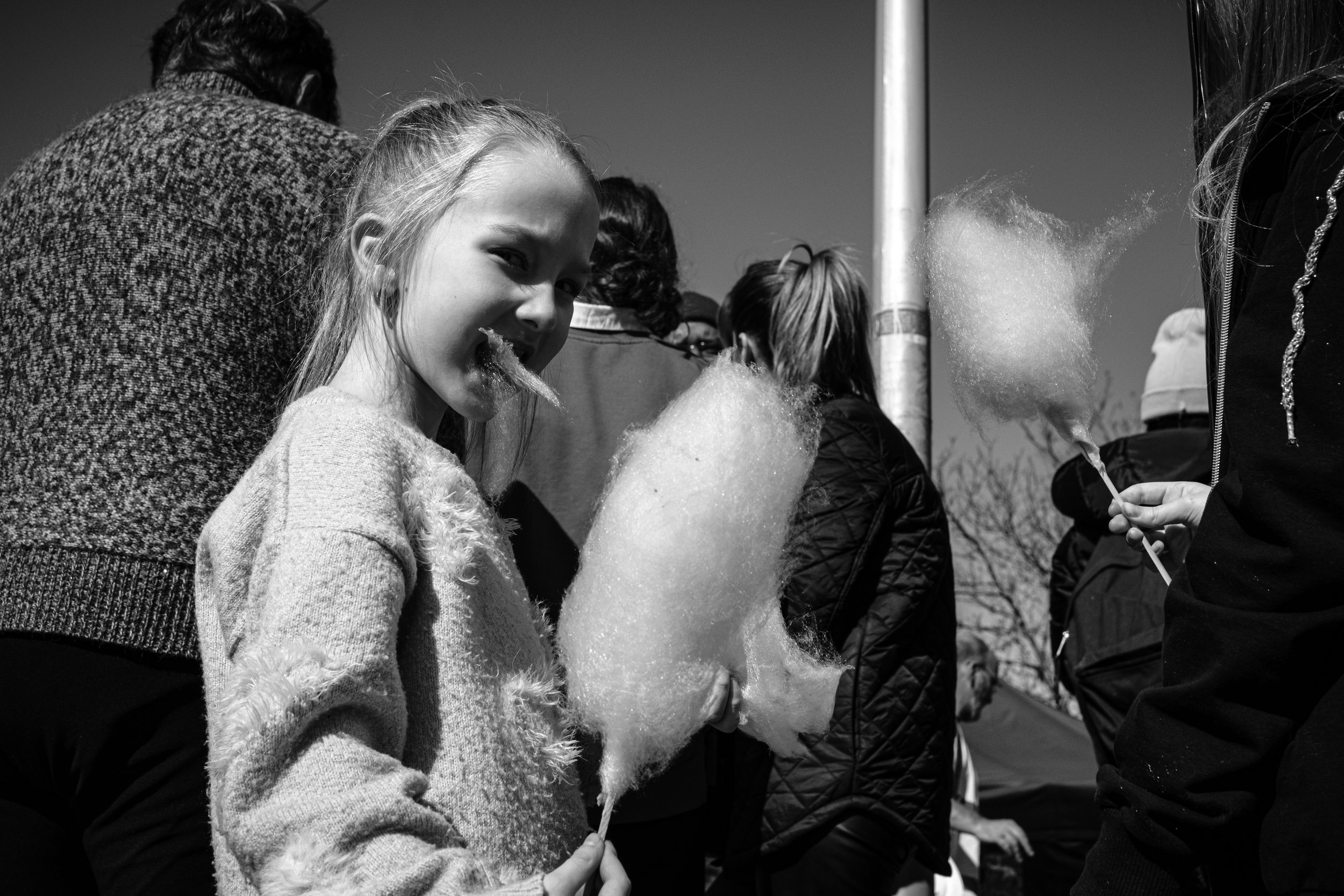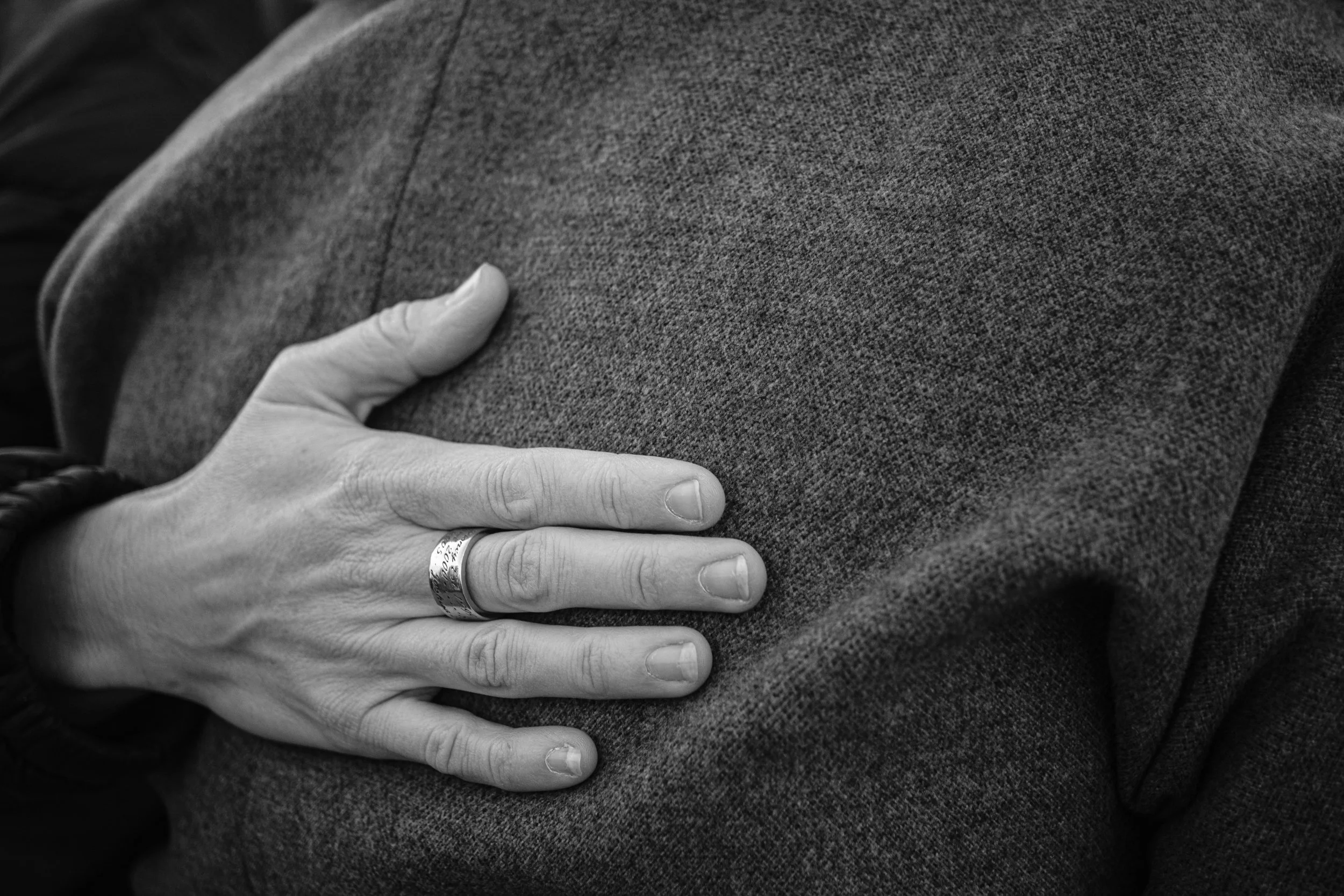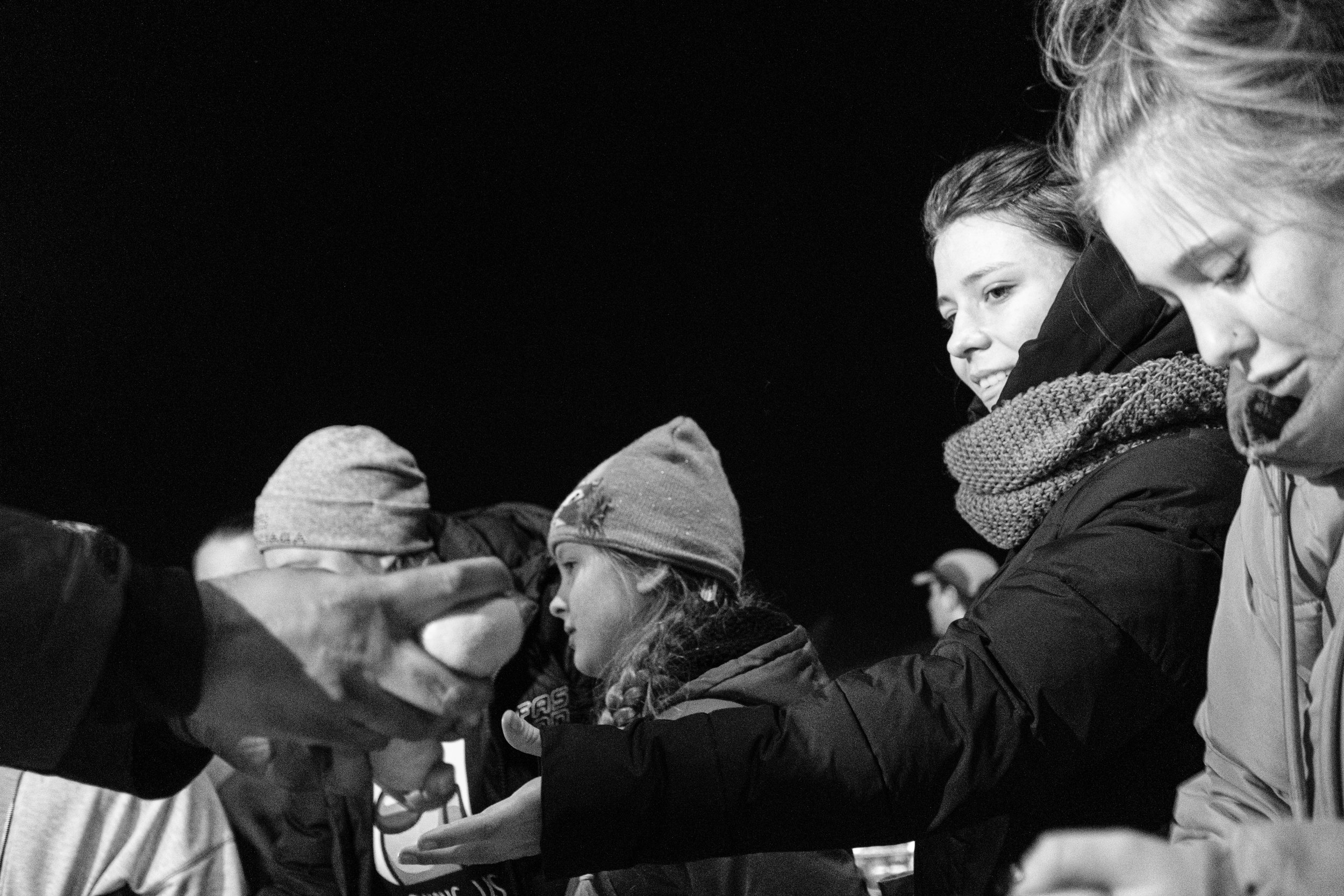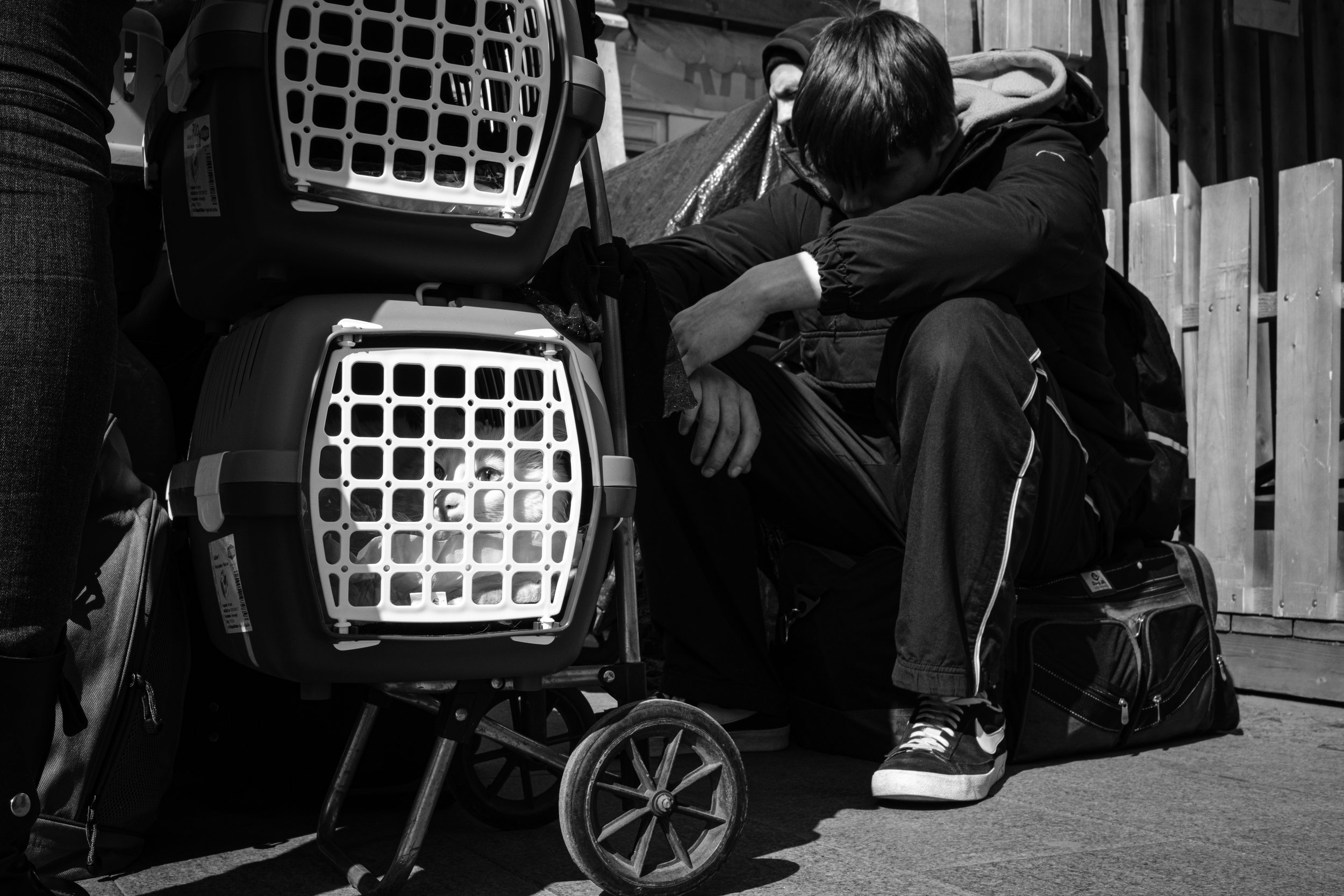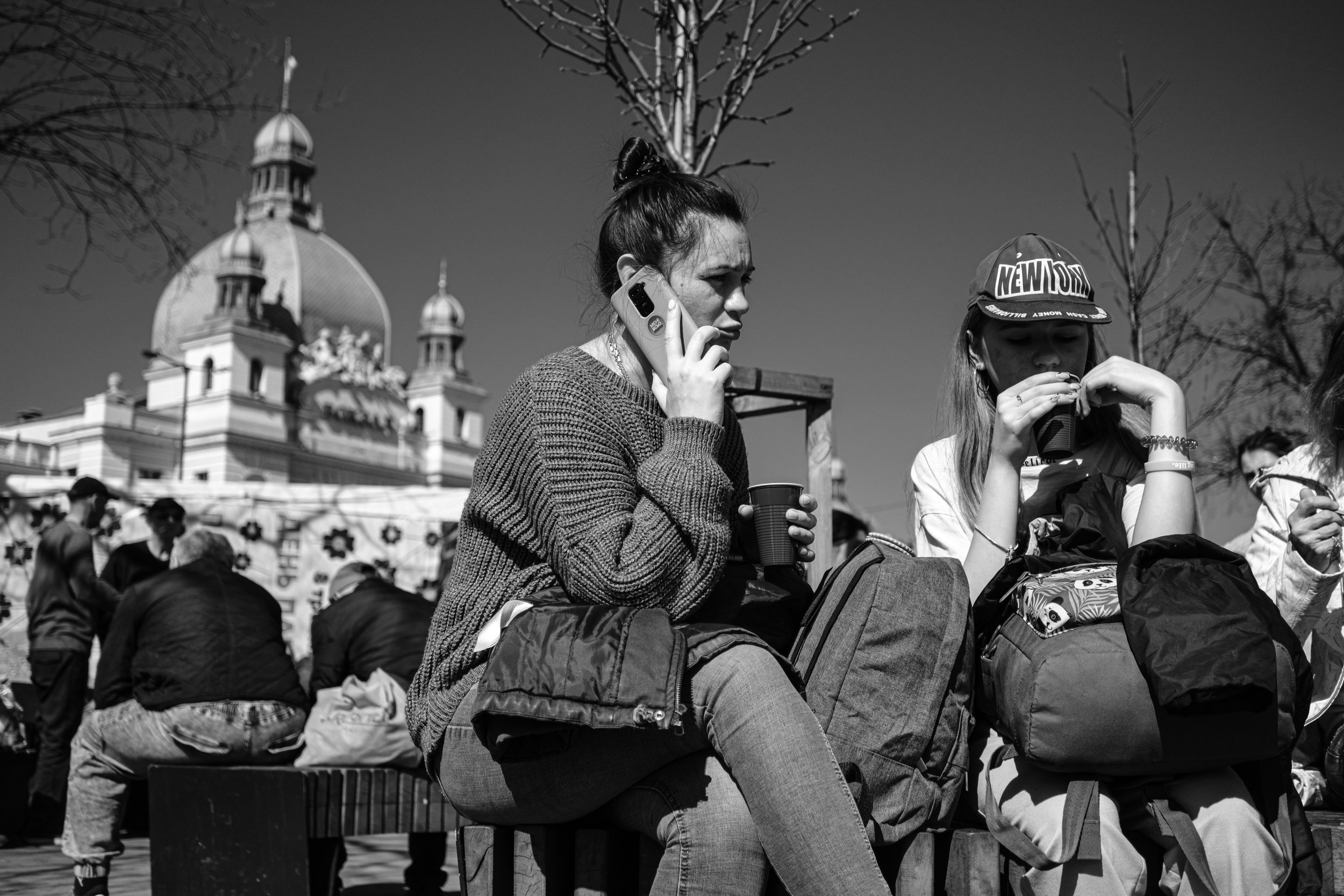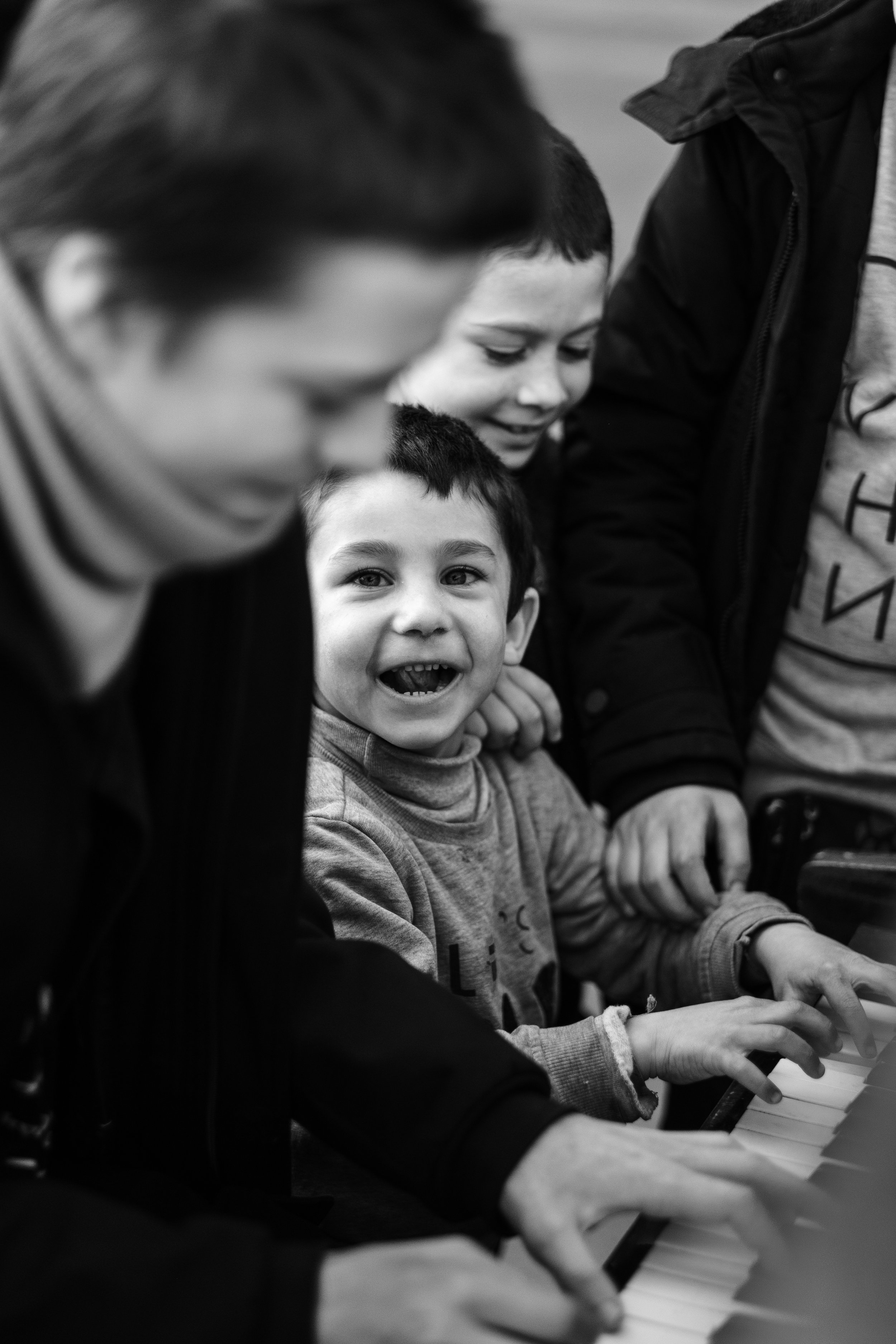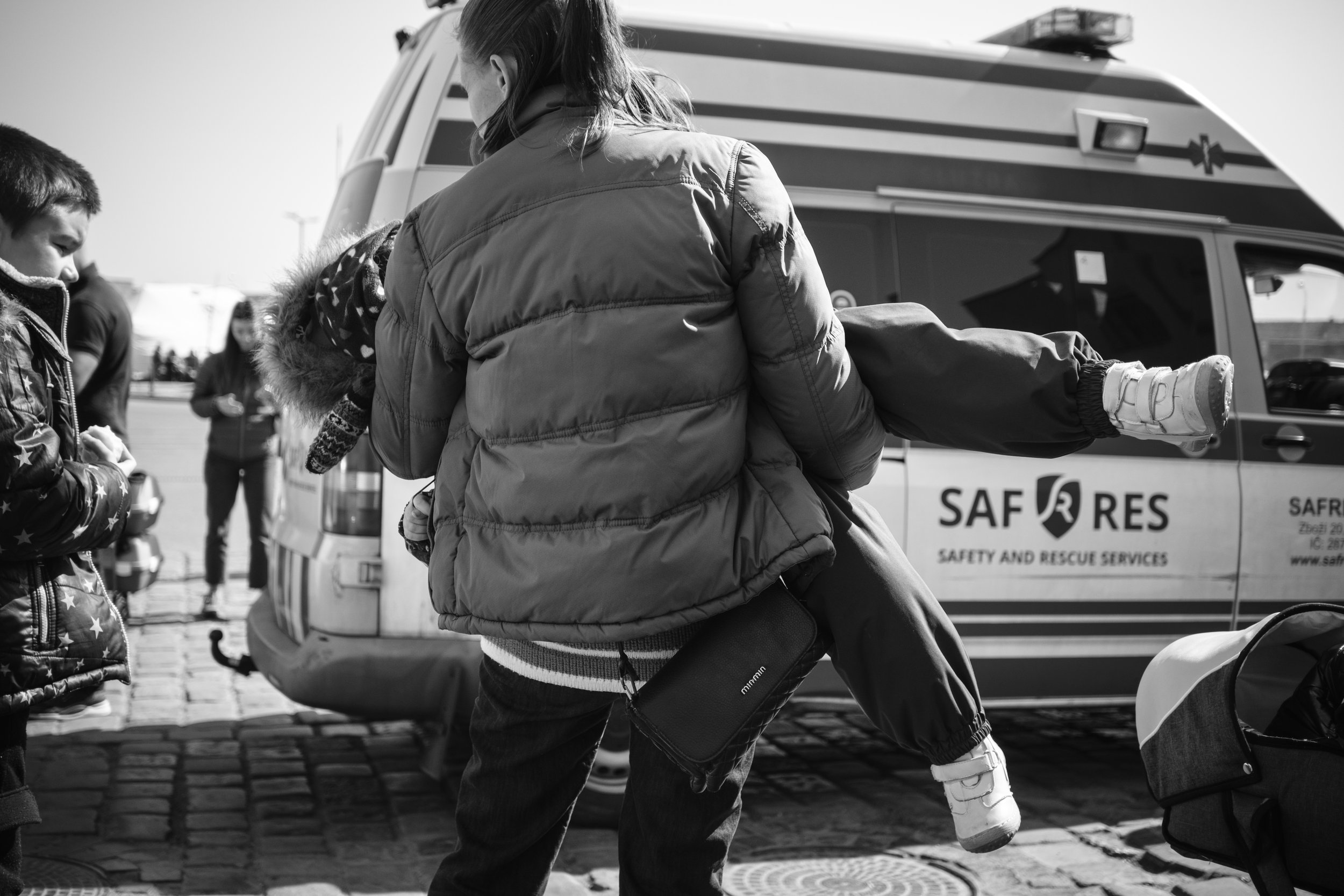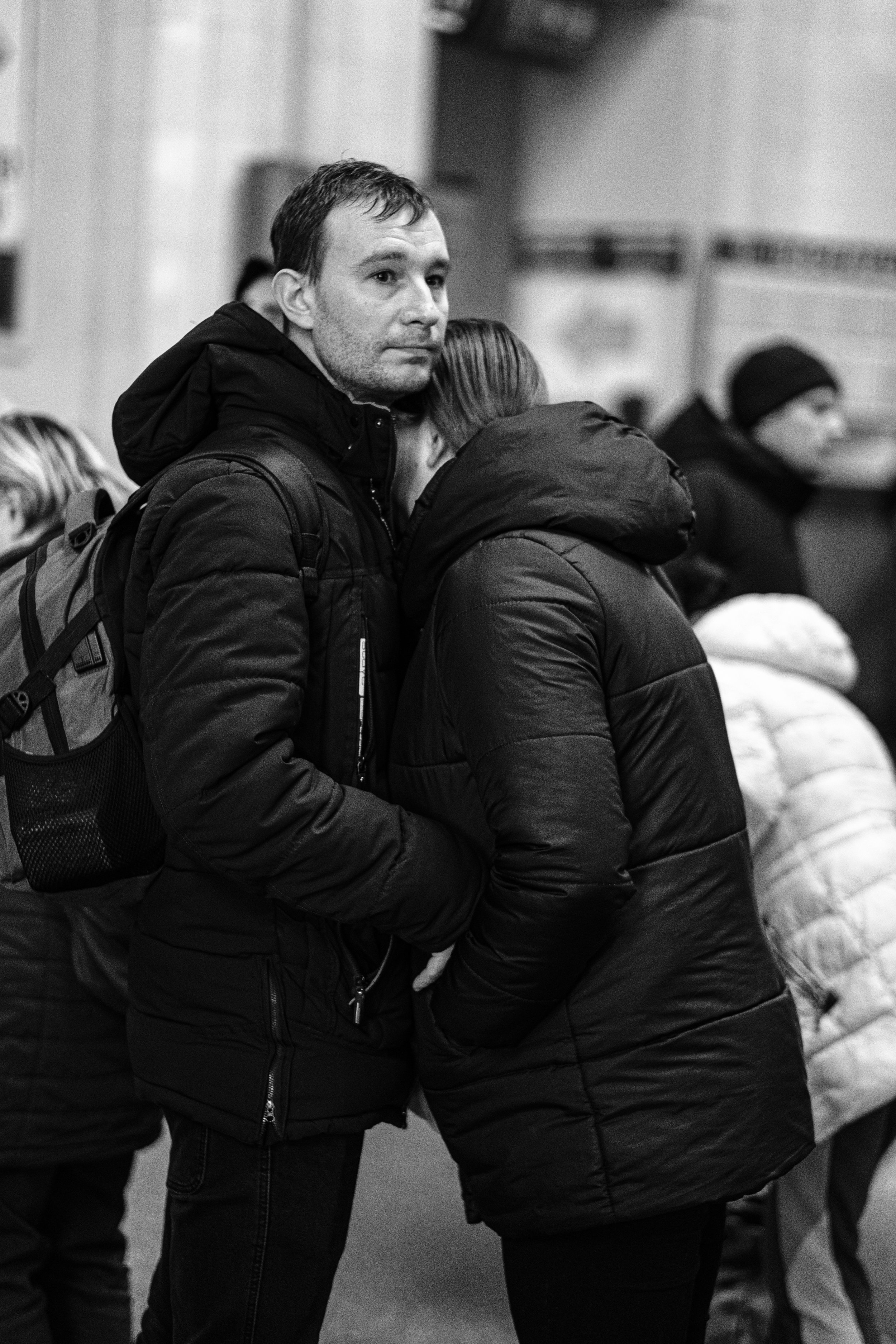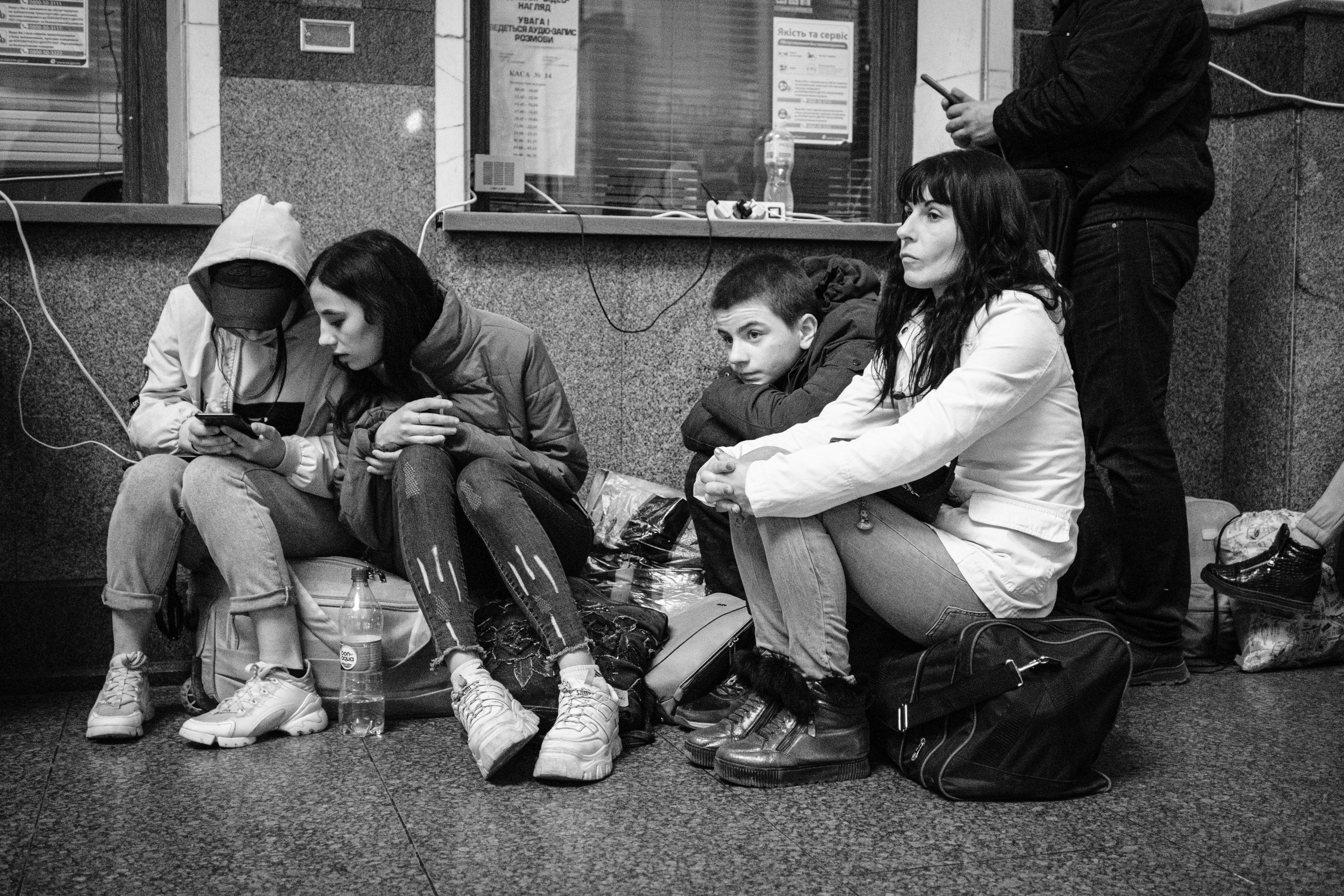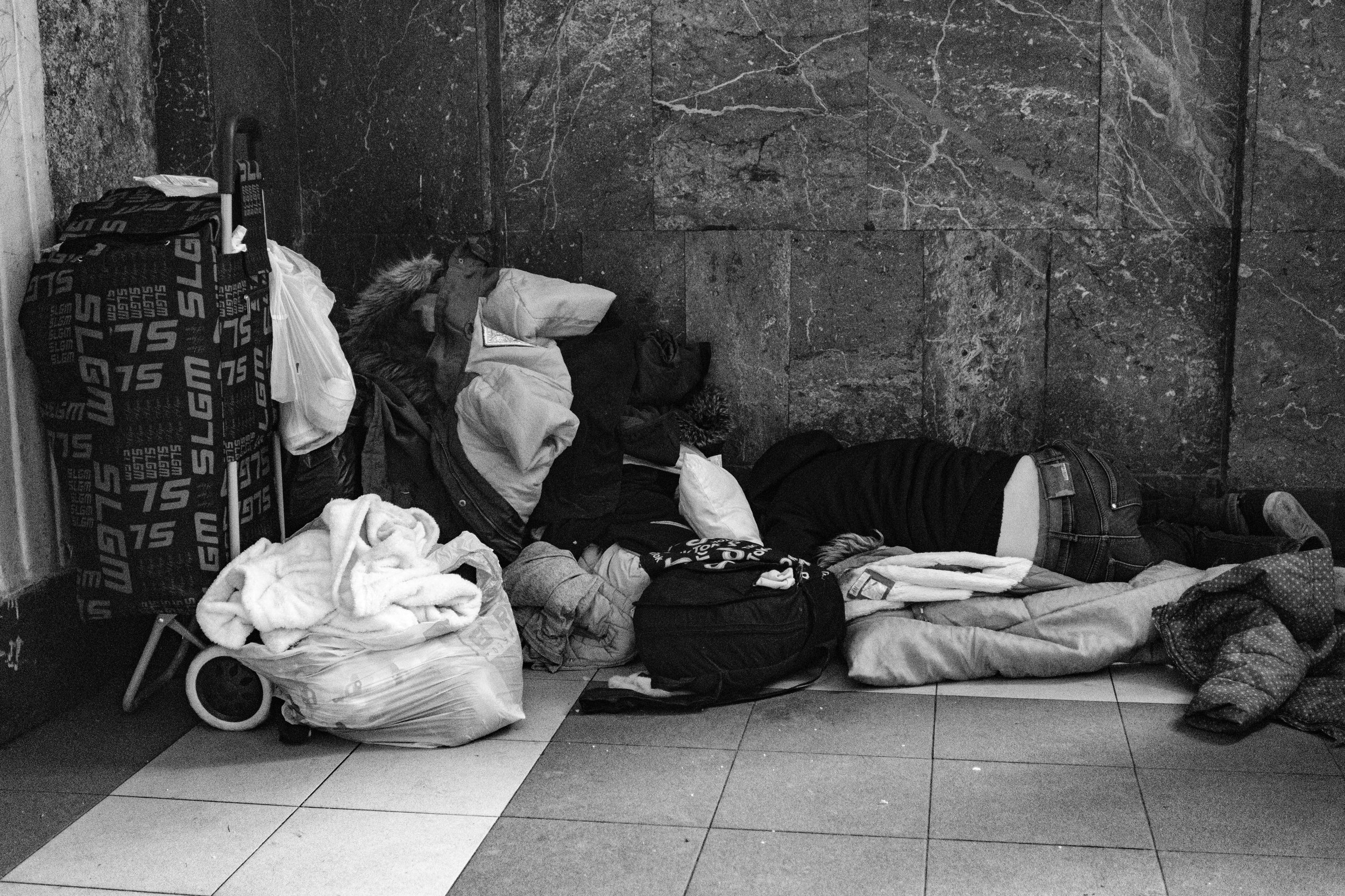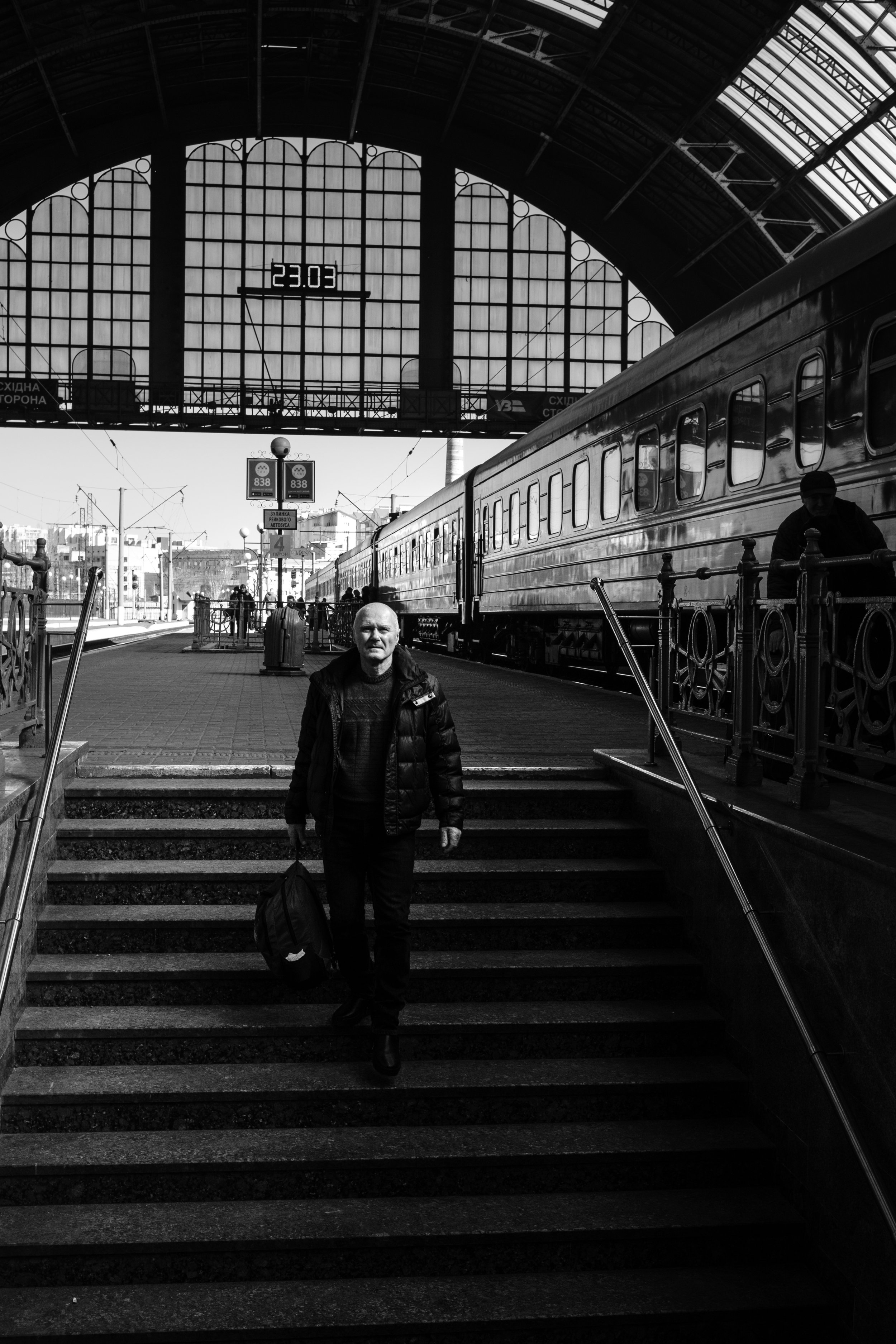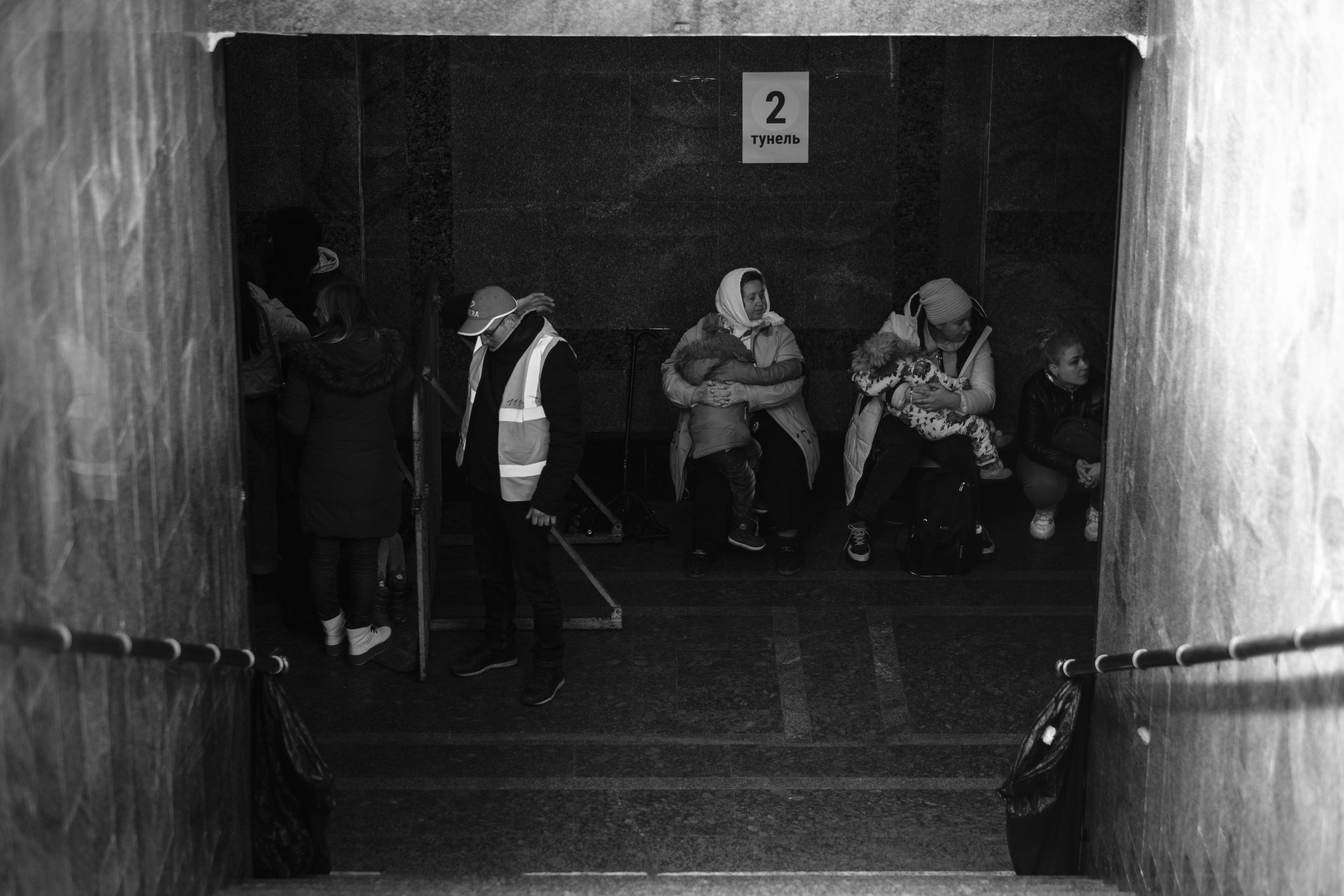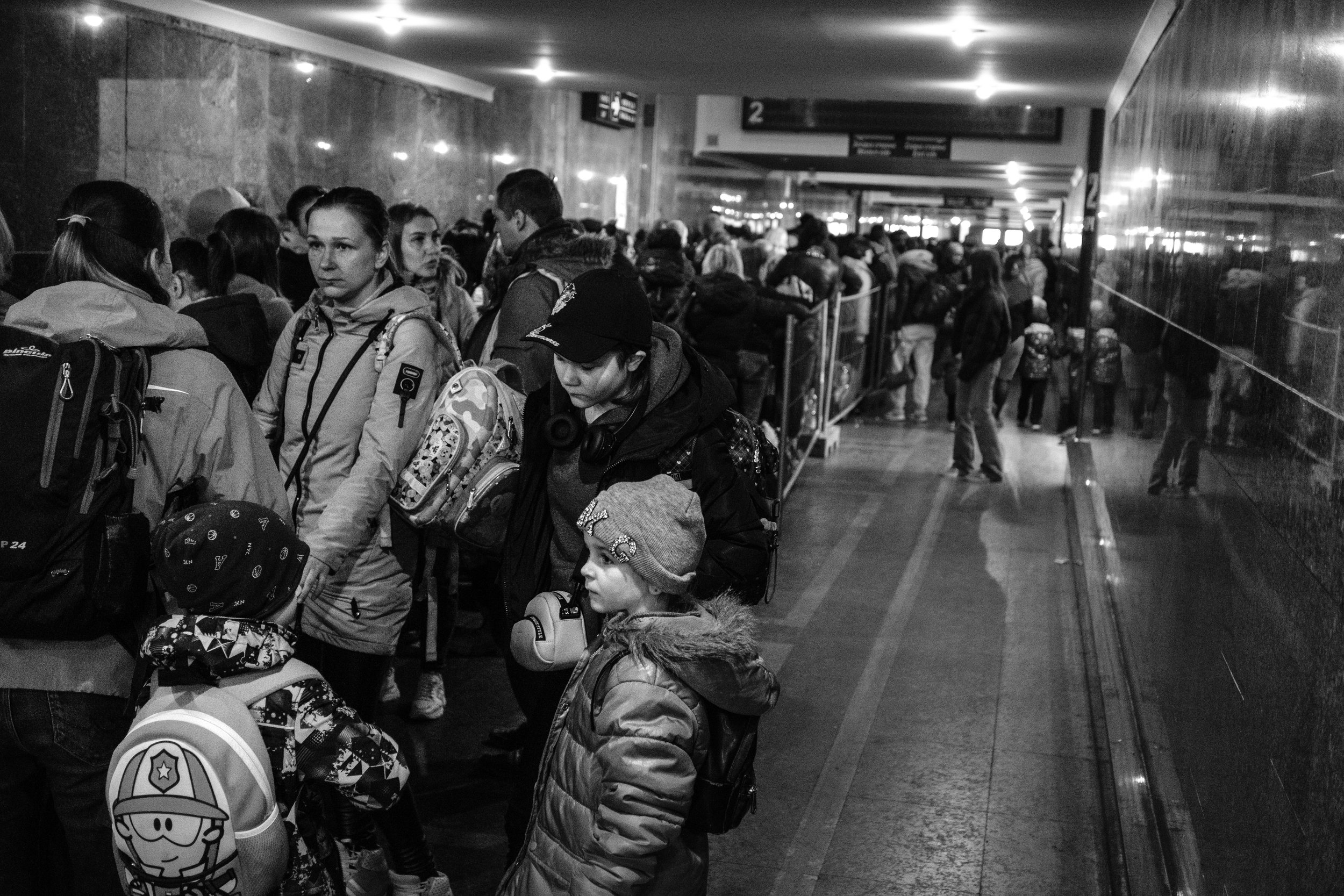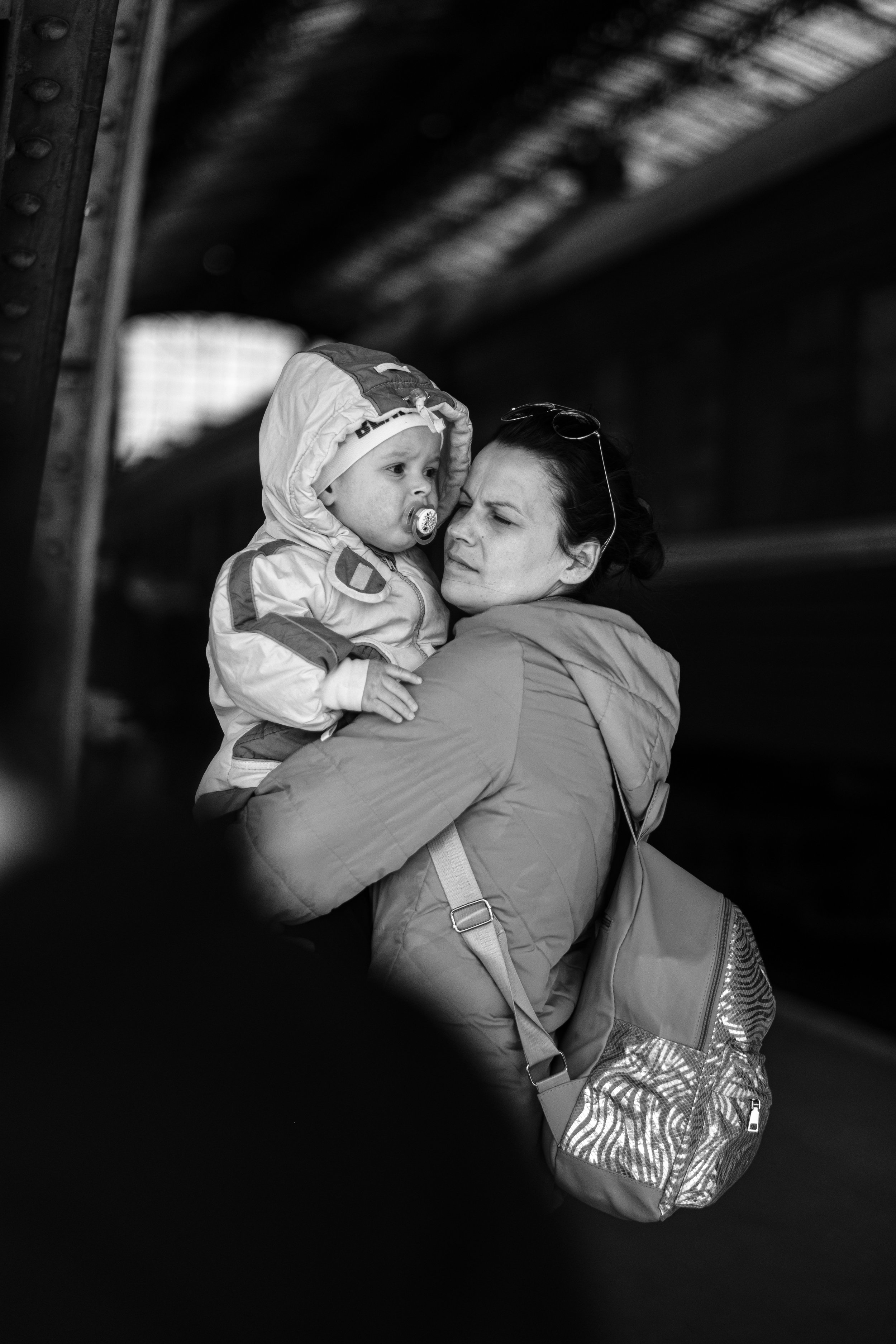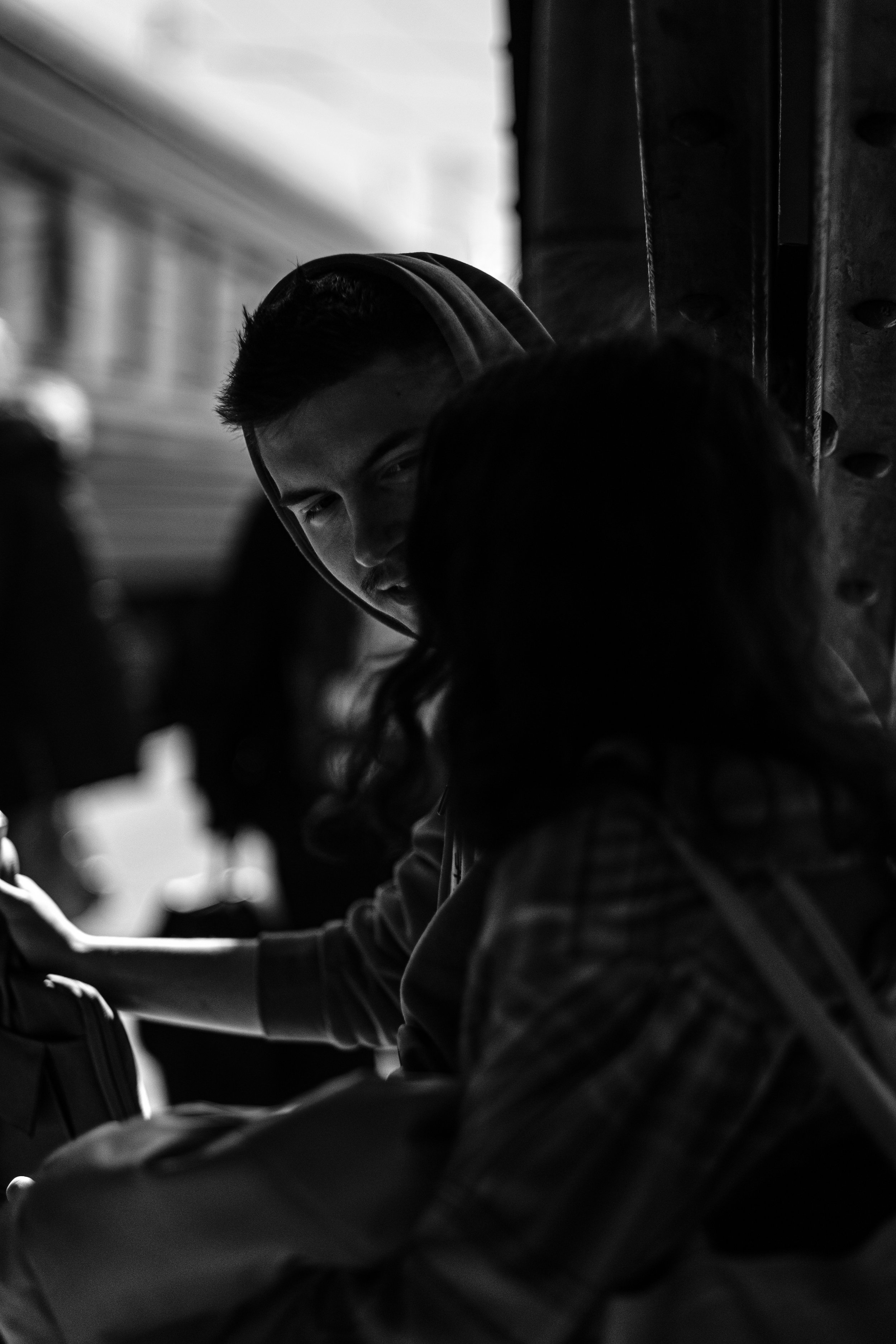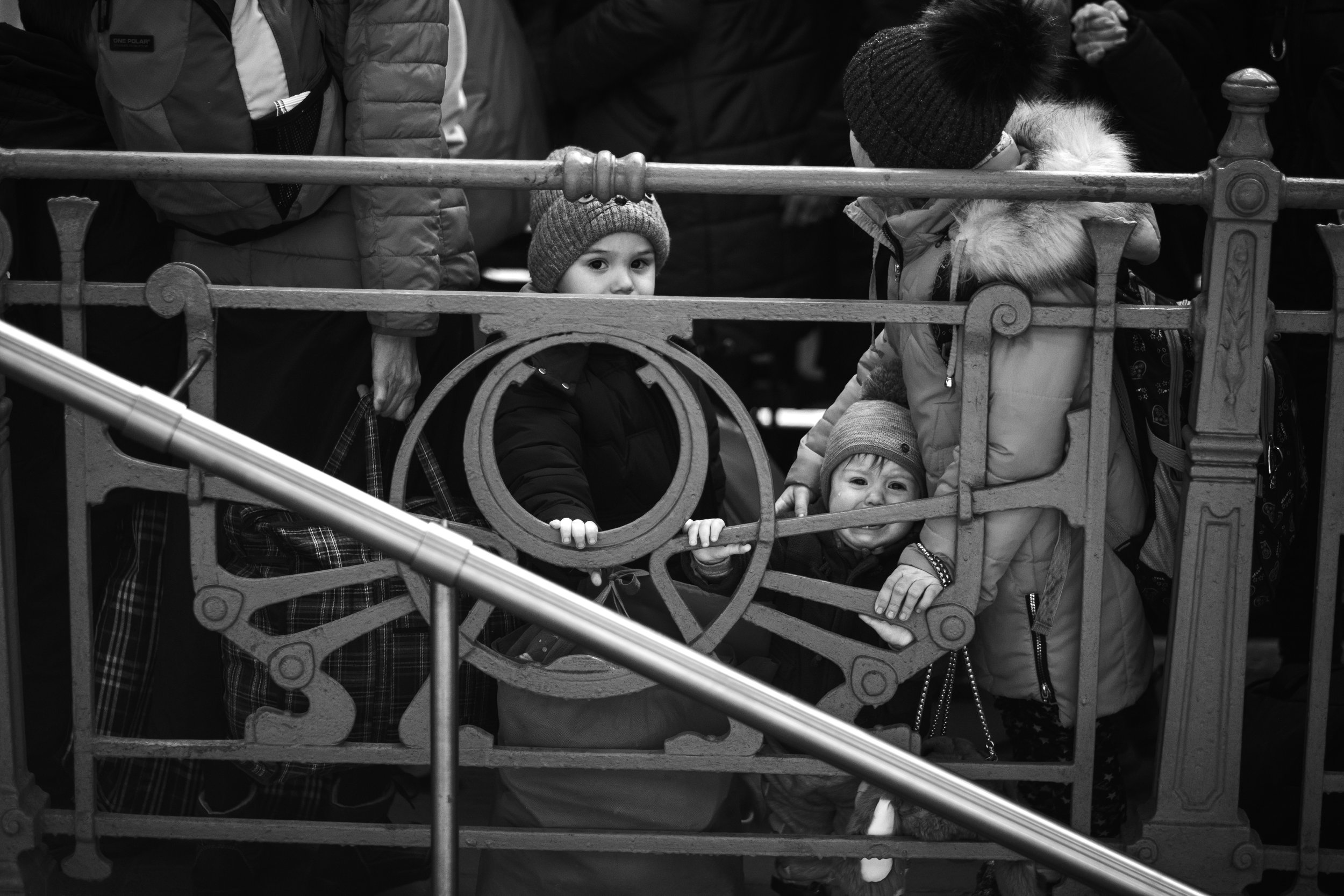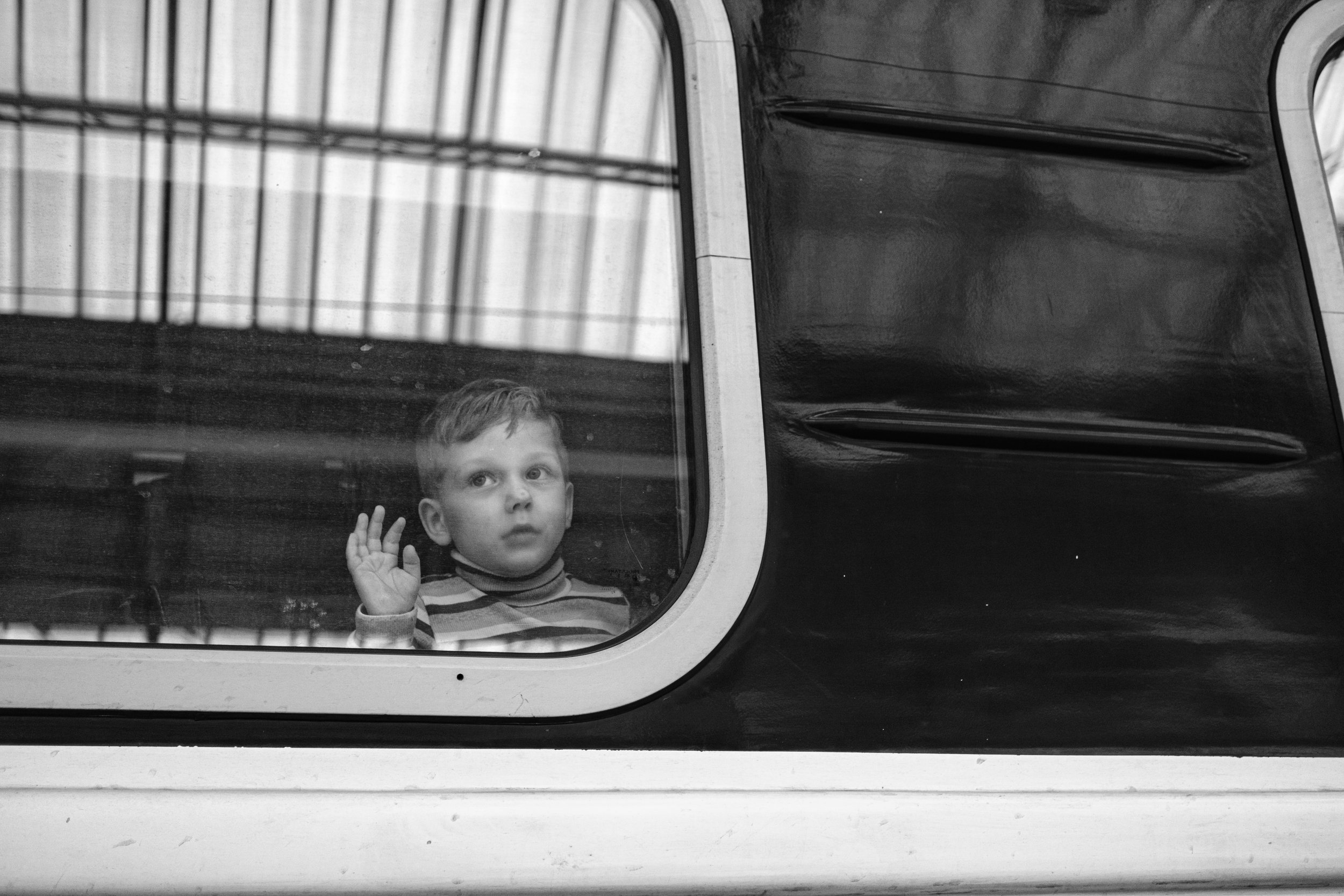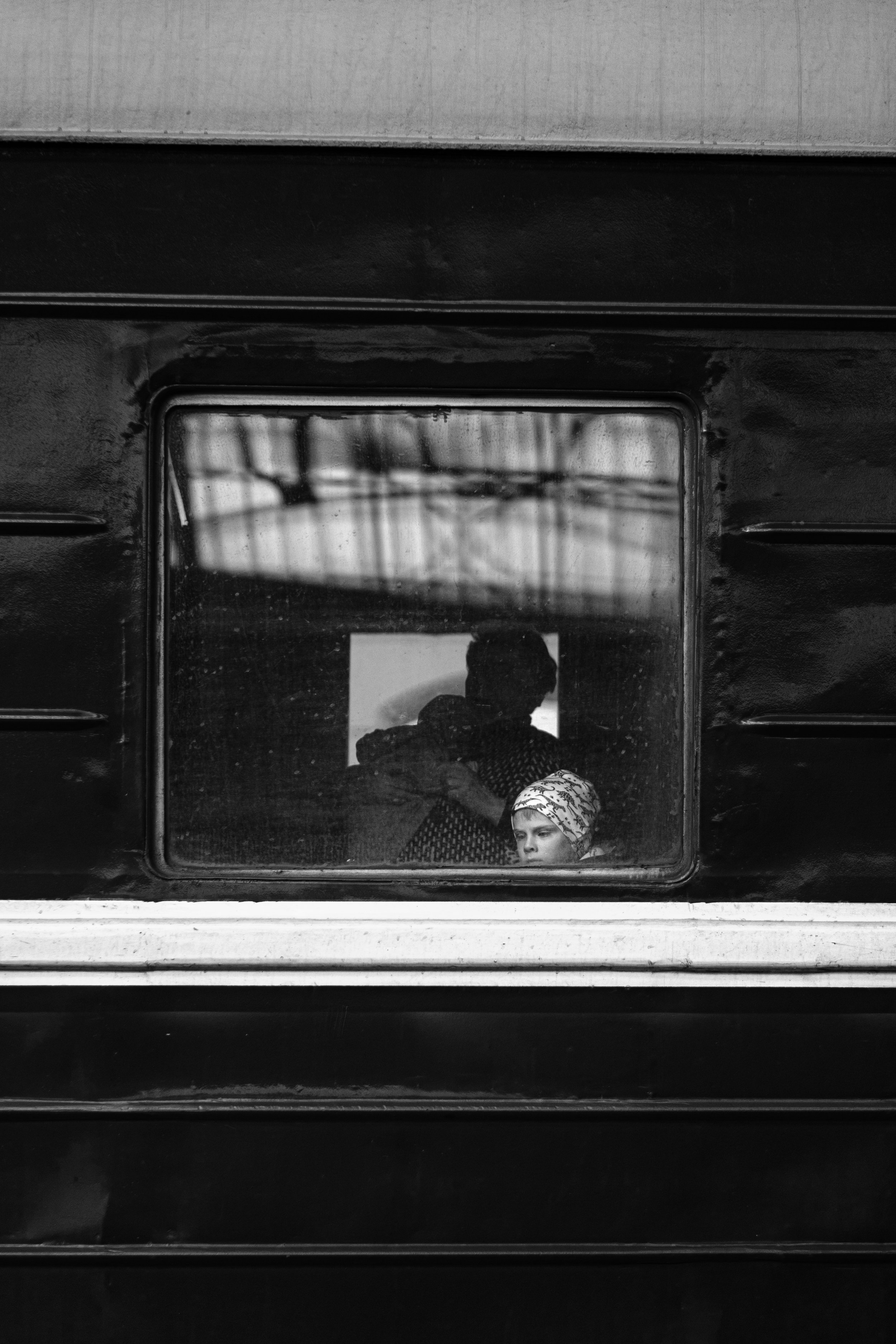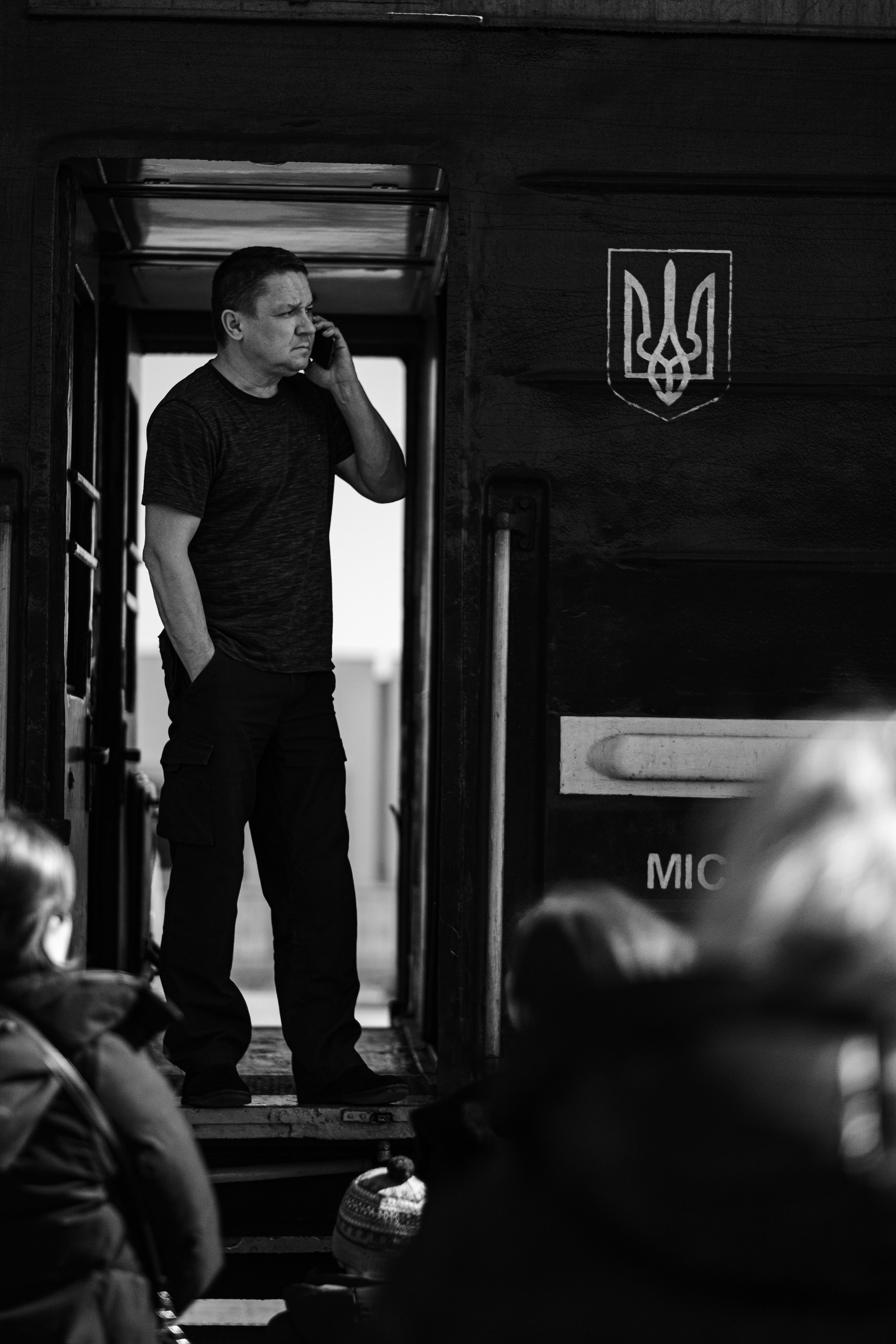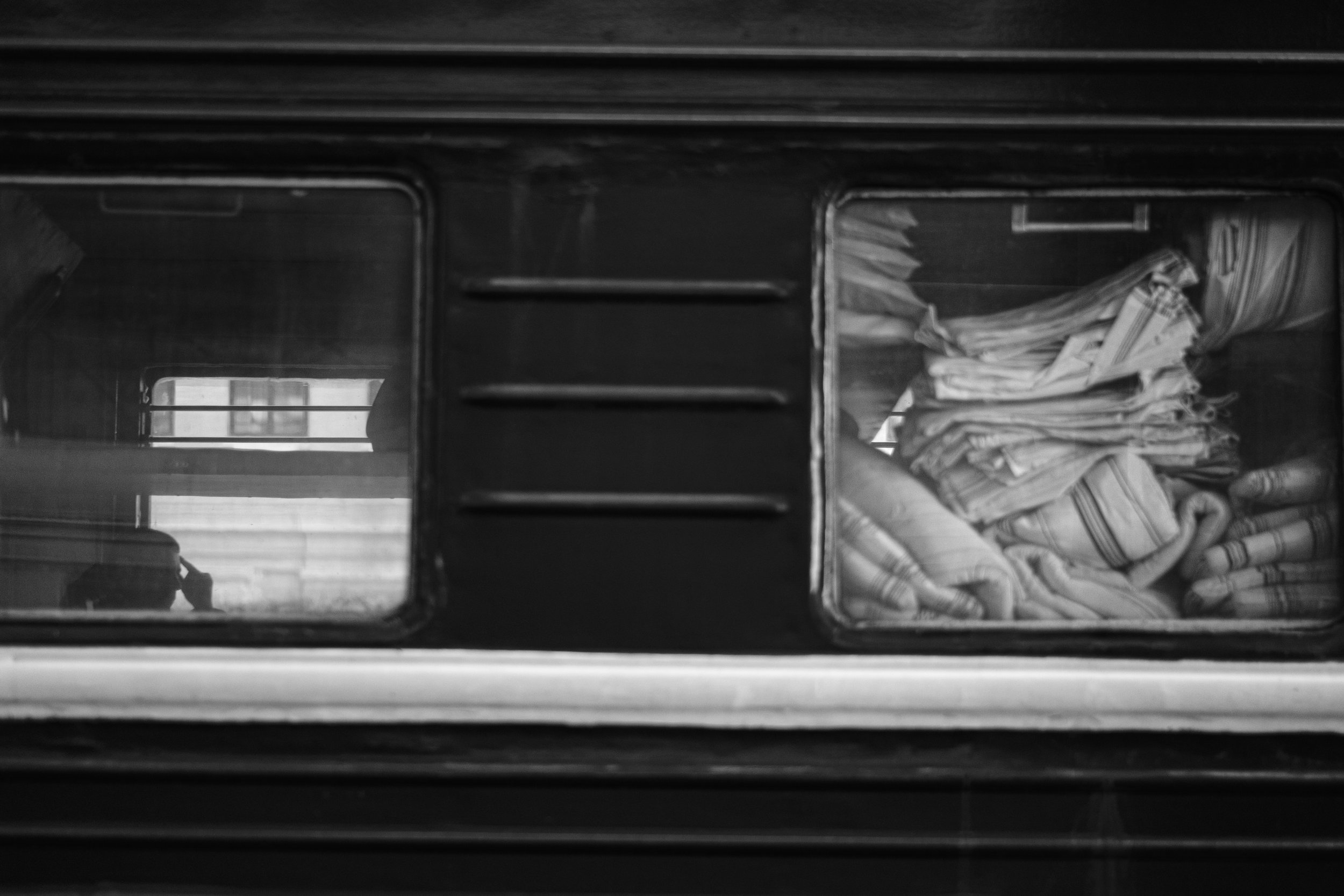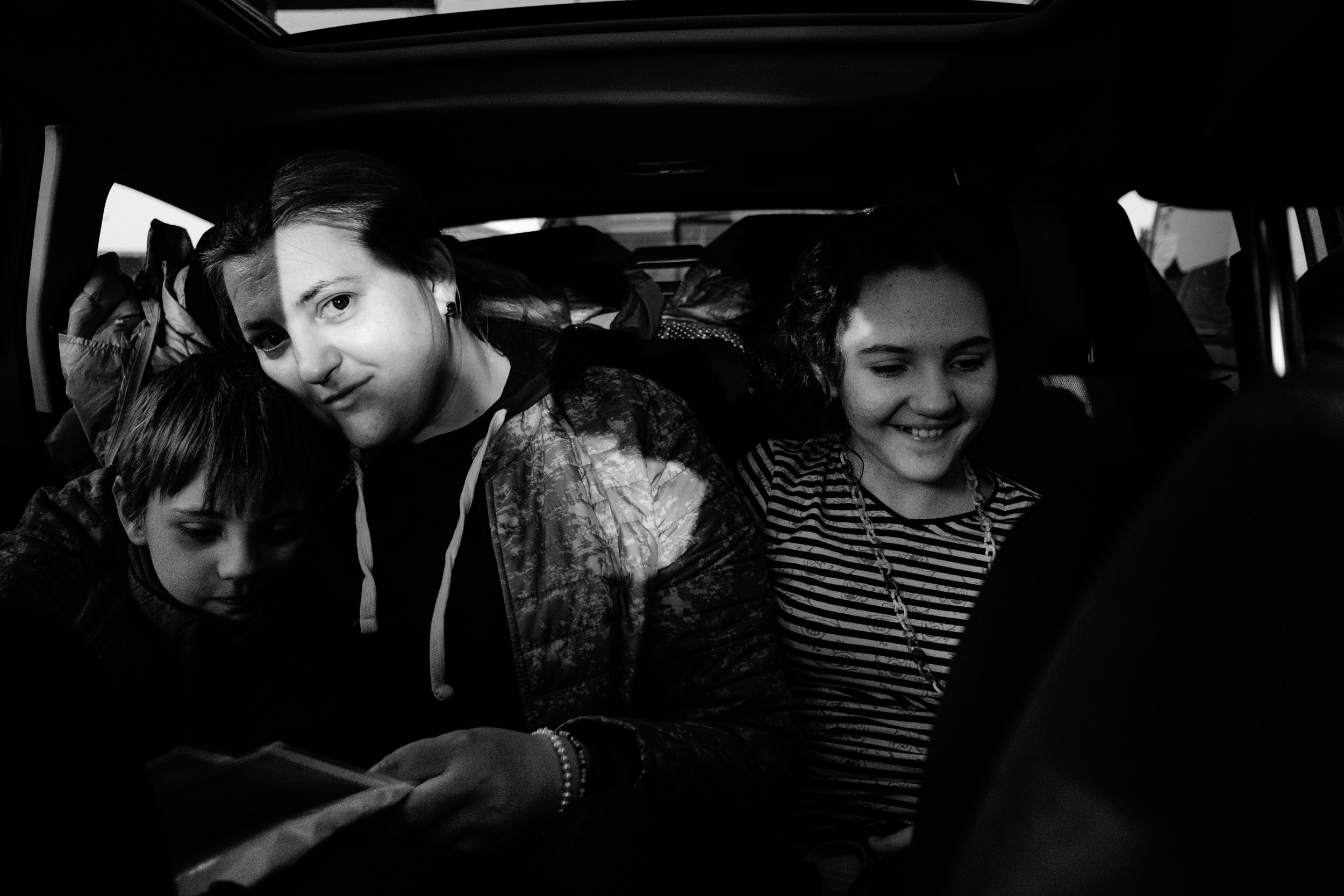The Futile War
Imagine taking a suitcase you use for holidays and packing it as full and heavy as possible. But when you do remember that everything you’re putting in is now all you have. Your whole life in one bag. The rest is left behind, looted, burned, blown up, destroyed. Never to be seen again. If you are one of the lucky ones you’re only leaving behind material things. The less fortunate ones are leaving behind family members either fighting for their country or already dead.
Imagine explaining all of this to your children as you take them on a days-long journey with no clear destination. You’re effectively deciding to make them homeless in order to keep them alive. What makes it even more terrifying is knowing that the invading Russian army’s bullets, shells, and rockets do not differentiate between military targets, civilians or even children.
I’ve been quite unsure what to write about this story. But when I finally got to the Przemyśl train station and saw what was going on it dawned on me. I’ll just tell you what I saw. I saw people desperate enough to run away from their home country in order to not be brutally killed by the Russians. I saw women, children, and the elderly enduring packed trains, lack of supplies, and the uncertainty of where to sleep or even where to be the next day just to be able to see the aforementioned next day. But I also saw incredible kindness in the form of hundreds of volunteers coming from all over the world to make the refugees’ lives a tiny bit easier and brighter.
I was completely frozen and unable to take a single image upon my arrival. A train from Lviv has just arrived packed with people trying to get to safety. As they were leaving the train they had to get either to a different platform or to the station. That involved quite a bit of stairs and these suitcases were neither light nor easy to carry. Especially considering the passengers were either women, children or the elderly. I did the only thing I could’ve done at that moment and I spent the rest of the day just carrying people’s luggage up and down the same four sets of stairs over and over only to make their days just a tiny bit easier.
One of the refugees was a woman I’d say in her seventies. After I got her bag onto the platform from which she was taking a train to Krakow she hugged me for what felt like at least five minutes. She broke down crying whilst holding onto me. I do not speak Ukrainian, but I can understand it quite a bit. She talked about being all alone and about her daughter on the frontline. I did not understand whether her daughter is still fighting or if she has died. The sound of her voice was heartbreaking.
As I’ve already mentioned the kindness shown by the volunteers is beautiful. I’ve seen people coming from not just all over Poland but also from Britain, Spain, Sweden, Canada, Czechia, Egypt, China, and many more countries. It is bringing some truly incredible people together from all around the world. Their help comes in the shape of much-needed translation, organisation, lodging, bringing supplies, cooking or even just carrying bags when needed. One of the people I met was a Brit named Ben who used his van to deliver supplies to Ukraine and pick people up on his way back to get them to safety. He’s been doing this for days even weeks and it must’ve made a world of difference for many families in need.
My friend Edward has come to Poland with me to take photographs of the crisis but after seeing what has happened he’s joined the volunteers to welcome the Ukrainian families disembarking the train from Lviv with much-needed necessities, nappies, toys for the children and so much more. He has done this regardless of the hour. The train arrived at 4 am? He was there waiting. The smiles he has given those kids were priceless.
Speaking of smiles, there were these two Ukrainian girls who just got off the train. Upon leaving the platform they walked past the volunteer stand with all the donated goods and they were stopped by a Welsh man covered with plushies. He started doing silly faces, dancing around with the toys and shown them to boxes full of toys for them to pick their favourite. And the girls definitely found their favourites.
The joy in their eyes and the radiating smiles were soothing for everyone around. Both girls started playing with the plushies, showing them to everyone around, hugging them as tightly as possible. It made us around forget for a brief second the horrible war they’re fleeing from. Chloe, one of the volunteers from England, said “This is what it’s all about.” and I couldn’t agree more. Keeping the kids fed, safe, and happy is crucial.
The Przemyśl train station might seem like a mess at first glance. But it’s actually pretty well organised once you have a proper look around. The parking outside is closed off to the public to keep enough room for the buses arriving from Medyka. The outer area is littered with heavy tripods, large cameras and TV crews awaiting their allotted broadcast slots. Upon entering the main foyer you’ll see dozens upon dozens of refugees either getting tickets or waiting for the next transport.
Some have been here for a long time. So long that many areas of the station have been repurposed as makeshift housing. People wait in the hallways, on the floor, anywhere they can. The aforementioned large and heavy bags or suitcases can be seen everywhere. Mostly in piles accompanied by at least one person keeping watch whilst the others are trying to get some information or food from the volunteers.
The amount of volunteers is also rather high. As I’ve said before, they come from all over the world. Some came to translate, some came to cook, some came to carry bags, and some just distribute necessities and supplies. Each one does something which makes the whole very efficient. It is beautiful to see how much help and how many good people can come together to really make a difference. Every little bit helps.
The platforms and the underground corridor connecting them are rather populated as well. It starts with a much needed hot meal kitchen and station handing out food to every incoming refugee as well as to volunteers working here days and nights. Men in fire brigade uniforms or hi-vis vests carry bags from trains to platforms. Security is keeping everything safe whilst the organisers are making sure everything is running smoothly.
Stupidly, I haven’t taken a single picture of the singing guitarist busking in the passage between platforms 2 and 3. His infectious smile and upbeat music must have made many people’s days at least slightly brighter.
Although most of the trains are coming in from the west and are departing back towards that direction there is one train coming in from Ukraine that is also returning there to bring more people in. And it is not leaving empty. I’ve seen many people returning to Ukraine for different reasons. Some just got here to make sure their families are safe and now they go back to help their homeland in their respective ways. Some return to Ukraine after realising they do not have anyone outside of the country and would rather live in a war-torn country. Refugee life can be extremely demoralising and difficult.
The other group of people taking the train to Lviv are foreign volunteers wanting to join the newly founded foreign legion. I’ve met Canadians, Americans, a Swede, an Australian, and even Czechs wanting to fight. I’ve talked to my fellow countrymen for a bit to find out their reasons and background. One of them is an Afghanistan war veteran who’s done three tours. His two friends didn’t have any military experience yet. But they did not let that stop them. “Who, if not us,” one of them tells me whilst telling me about his baby daughter and his need to fight to keep her safe from Russian aggression.
The three Czech guys reminded me so much of my circle of friends I had when I used to live back in the west of the country ten years ago and it made me think. Had I not left the country for so long and stayed living there I would’ve most likely been on my way to fight as well. Your life can change quite a bit without you even realising it until it’s done. Nowadays I do all of my shooting using a camera. But I digress.
Best of luck lads! I hope to hear your stories when you come back.
The busiest crossing on the Ukrainian border at the time of my visit was Medyka. The Polish side was packed with tents and prefabs built to accommodate the volunteers and their stations. The first third of the main footpath is divided into two sections by an aluminium fence to ensure a smooth flow of people in both directions. Both sides of the footpath are littered with different kinds of volunteer tents and gazebos. Some offer warmth, hot food and a space to rest. Some accommodate volunteers offering information about transportation towards Przemyśl.
There was a small tent city on the outskirts of the main area where I believe volunteers lived since they have been staying there for a long time. Some of the volunteer stations gave out basic necessities like nappies, clothes or children’s shoes. Many different organisations came in to chip in with what they could do to help. I’ve seen stations of NFSC, Egyptian Red Crescent, mobile service providers offering free data and calls, or a Sikh food truck. Not a single hostile or angry person in sight. It was beautiful and touching to see so many good people coming together to help.
The queue for the buses can be rather packed at times. The Polish military is making sure everything is running smoothly and that no spots on the buses are empty. Of course, many refugees are looking very tired and low-spirited. Who wouldn’t be in such a tragic situation? There are those who are at least doing their best to keep people on the positive side of things, happy or at least helping them to, for a brief moment, forget about their situation.
Especially the children. Many people did their best to let them forget about the horrible month they had to endure. All the fear and anxiety of expecting to be blown up at any moment. It was truly beautiful to see them smile and even laugh in the face of such adversity. All thanks to a few good-hearted people. A volunteer musician playing his piano all day to keep the atmosphere relaxed. A bunch of men with guitars, harmonicas, and in full clown outfits acting all happy and silly. A Red Cross volunteer who set up two tiny football goals in the middle of the footpath. That way anyone passing through was his teammate for a brief moment trying to score a goal. As sad as the whole situation was it felt amazing to be among such amazing people.
I went to Lviv twice during my trip. And both times were tough. I expected to be depressed by what I was about to see but it still wasn’t easy. The city life seemed like it hasn’t really changed. The trams were running, shops were open and everyone seemed to be just going about their business. But like I said, it only seemed that way at first. The amount of internally displaced people living in Lviv was incredibly high. The official numbers say roughly 60 to 70 000 people have come to this western hub of Ukraine since the start of the war.
The city centre is flooded with people trying their best to earn some money. Elderly people right by the St. George’s Cathedral selling whatever they could bring with them to make some money for food. The largest aggregation of people though is on the main train station. The ten-minute walk from the parking is already packed with people wandering seemingly headlessly until you get to the Dvirtseva Square outside of the station. Thousands of IDPs waiting in limbo with nowhere to go. The mood here though is very different from what I’ve seen in Poland. Because these people are not in a safe country yet. They are still waiting for a way out and the rockets could come at any time.
Large piles of bags can be seen everywhere. Men, women, children and even babies are living outside of the station, sleeping on benches, curling up amongst the suitcases to keep warm, unsure of what’s next. A few volunteers have propped up some tents and are distributing food here as well but nowhere near the numbers as across the border.
The train station itself is as beautiful as any station in any major European city. The story inside is quite different at the moment though. The main foyer is again packed to the brim with thousands of people. The amount of volunteers, compared to Przemyśl, is significantly lower. You can see a hi-vis vest here and there but apart from that many are on their own. No food stands, no supplies of necessities, not much in terms of help when it comes to waiting long.
Almost every centimetre of all the waiting rooms is occupied by someone. It’s a busy mess of despair and exhaustion. The elderly sleep on the benches, the men sleep on the floor, children sleep on suitcases. Mothers do whatever is possible to keep the kids entertained.
A large area on the third floor has been converted to house women and children. Well, convert is a strong word. It’s basically a huge room covered in mattresses and blankets. The mothers here are tired, the children are restless and the overall mood is very sombre. A Canadian journalist Polina Teif and I have delivered some baby medicine from Poland which got us a chance to have a look at the back room and it was full of supplies from all over the world. I’ve said it before and I’ll keep saying it to make sure everyone gets it. Every little bit helps.
The queues for the train departing for Poland are not just long but you also never really know when the next one arrives. Sometimes you can be lucky and the train leaves multiple times a day. Once I’ve seen it be delayed for over nine hours and it only left once that day. The waiting times can easily exceed 24 hours. This makes it extremely difficult for the elderly and mothers with children. So pretty much everyone boarding since those are the only passengers allowed to leave the country.
Many passengers are boarding trains heading back to Kramatorsk, Zaporizhia and other cities east. The story is the same as all those people back in Poland heading back home. There is nothing for them here. These trains were also often boarded by men who came all the way to Lviv to make sure their families got to safety before returning to fight.
Seeing trains coming in from the east carrying refugees was an eye-opener. These poor people have been through hell and it’s not over for them yet. One man in obvious excruciating pain was being carried off the wagon to be taken away on a trolley. His leg was fully immobilised and wrapped. Blood and puss were soaking into the bandages and the gypsum from the fresh wound. His wife stood nearby with all of their bags and an adorable corgi. She was the sweetest lady saying how her husband worked on building a checkpoint before being attacked by Russians. A large concrete slab fell on his leg due to an explosion shattering the bone. She said they were going to try and save his leg in Germany, where they were getting via a direct ambulance. She also said that it seems like the leg is already lost but they are not going to give up trying.
Minutes after that encounter I had to stop taking photographs and just step back, calm myself down, and do my best to not break down for a brief moment. This was all triggered by seeing small children, and toddlers getting off the train visibly distressed, crying, and just plain terrified. After just having a baby of my own this hit close to home. No baby should ever feel this way. No child deserves what has been happening here and all over the country. One boy was getting consoled by his older sister who couldn’t be older than five and it just made me feel sick. She should be running around her neighbourhood with her friends, drawing chalk flowers on the pavement, not calming her terrified baby brother whilst getting off a train hundreds of kilometres away from home. I just hope they’re young enough not to remember this in the future.
I got to Lviv using my car. Even though I planned on taking the train there and back to take more pictures I couldn’t do it in the end. I just did not want to take someone else’s spot. The train can only take so many people and knowing there is a refugee left behind because I got on didn’t sit right with me. This meant I had room in my car on the way back to Poland, which I happily offered and got two Ukrainians to the Przemyśl train station almost a day before they’d get there had they waited for the train.
The night after was a sleepless one for me. I kept thinking about bringing more people in since I had the means. It was a four hour round trip, so I could do at least three trips before the curfew. I left first thing in the morning and got to Lviv just after the curfew was lifted. I met this young girl named Lisa. She was a psychology student in Kyiv before the invasion and now she’s set up in front of the station helping pair refugees with drivers heading to anywhere in Europe. I told her about my four seats and my plan and she started looking for my new passengers. It took a while so I had one last wander around the station for a few more images.
Lisa managed to find me my first passengers. It was two sisters Ana and Svetlana with their three children Mariana, Uljana, and Ostap. They were the sweetest family. Mariana was learning English so she tried communicating with me a bit. What we couldn’t communicate using our in-car mixture of Czech, Ukrainian, Russian, and English we passed onto the Google translator on our phones and we had a blast. The children were fun, well behaved and the women were clearly amazing mothers.
Unfortunately, we got stuck on the Polish border for a little over 7 hours. Apparently, the Polish border guards did not have Cyrillic keyboards and did not really understand the alphabet in the first place. This becomes an issue when you have thousands of passports coming through every day with no chips so they all have to be entered manually. It was quite the bottleneck as the Ukrainian side let us through very quickly.
Once we got to Poland it was already dark and the kids were amazed by the simple fact that there are street lights on all over the city. You see, they spent the last month in full darkness not to be bombarded or shelled. They were all from the Chernihiv area which has seen a lot of fighting.
Once we got to the station a super nice Russian speaking translator from London named Pany arranged for them to sleep somewhere comfortable before their train to Wien would come. Mariana has given me this lovely blue and yellow bracelet made by Uljana to remember them and I definitely will.
The delay at the border was a bit of a dent in my plan to do at least three round trips to Lviv and to bring as many families as I possibly could. Nonetheless, Ana, Svetlana, Mariana, Uljana, and Ostap have since texted me telling me about them getting to their destination in Austria safely and that the children could not be happier.
I’ve said it a few times before and I’ll keep saying it.
Every. Little. Bit. Helps.
One of the volunteers on the Przemyśl platform has told me to think of it this way. A little bit of help from a single person is like a grain of sand. But if there are enough of us doing so, it can become the Sahara. That tiny bit of money you sent could be just enough for a mother to buy her baby some teething relief. Those old toys you’ve sent can make a child smile for the rest of the day. The donation you’ve sent might’ve helped the cook make one extra portion of goulash. Don’t think you can’t really help because you can’t really do much. It counts. And it can make a huge impact. Especially when we all do so.



